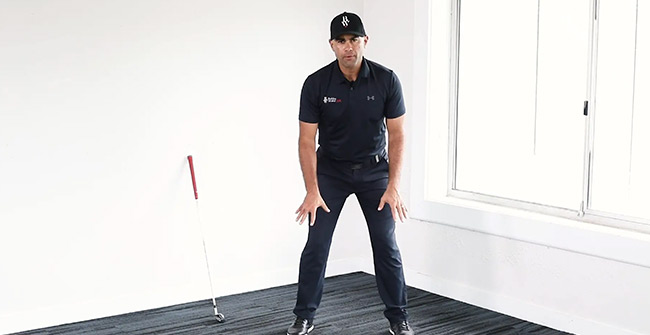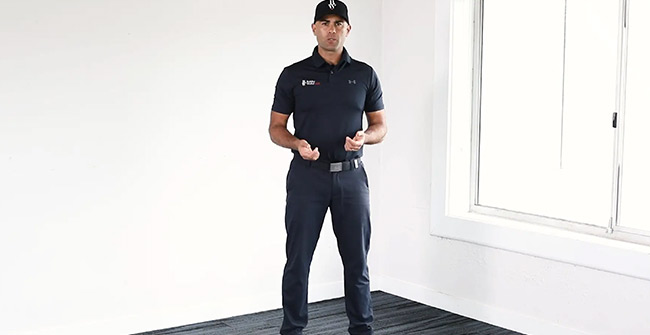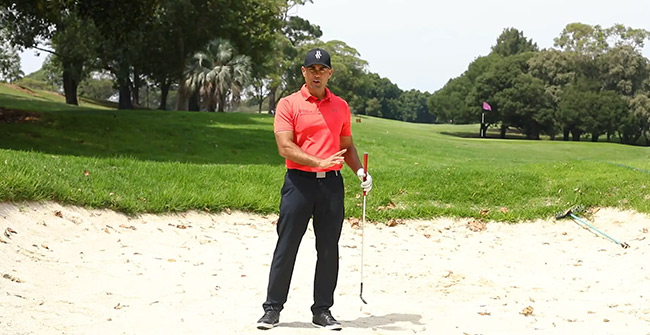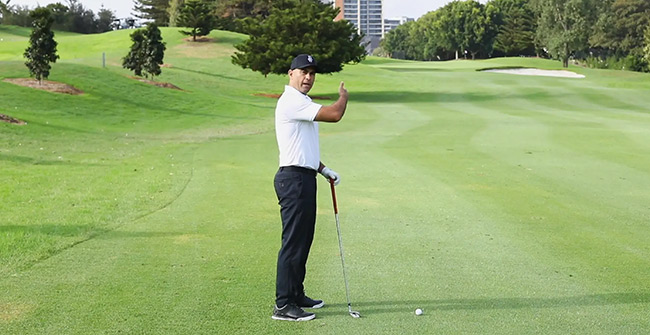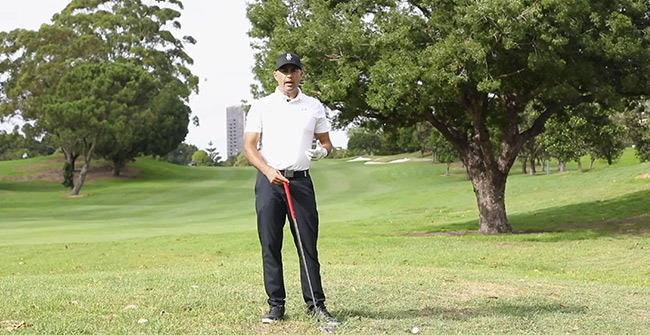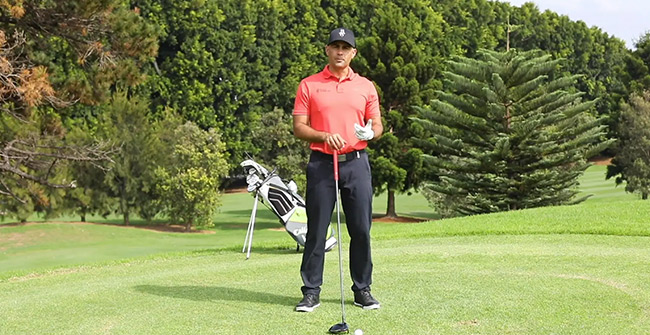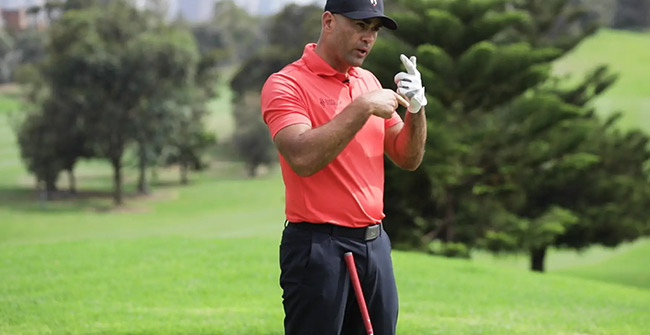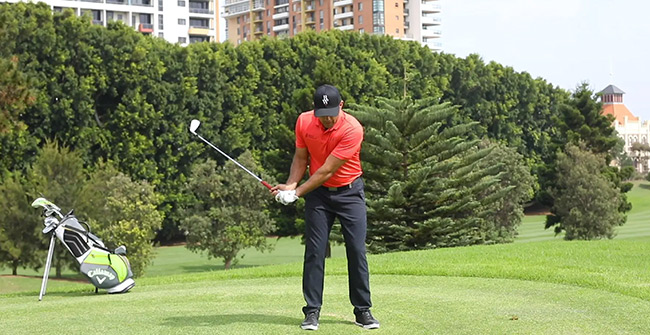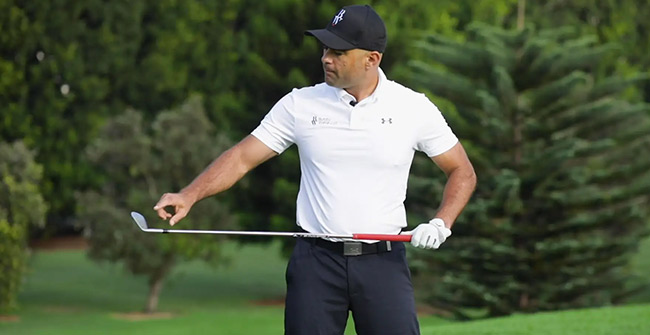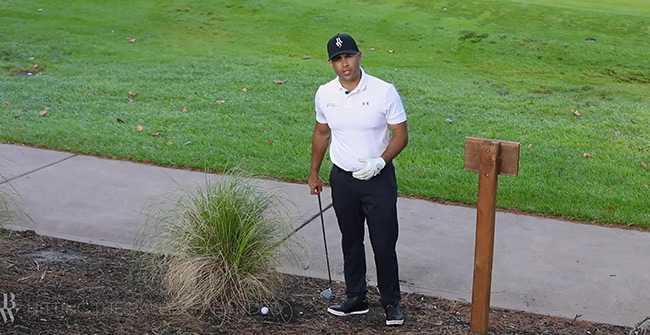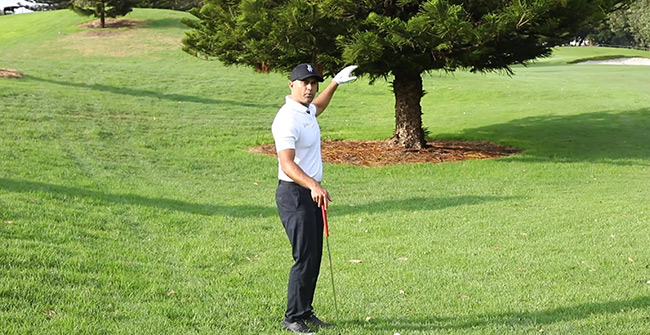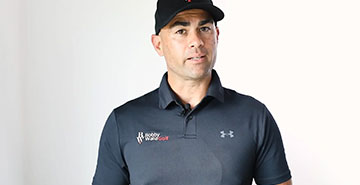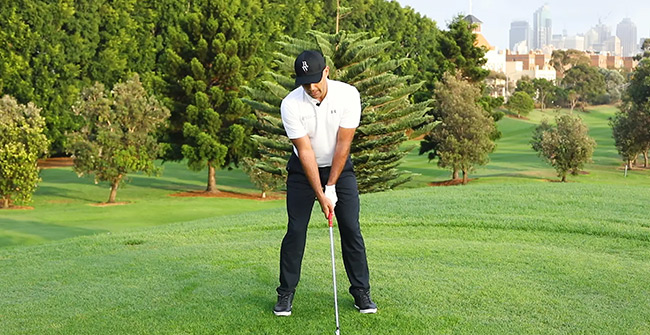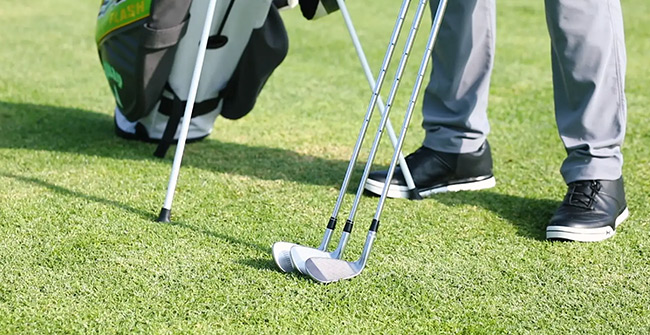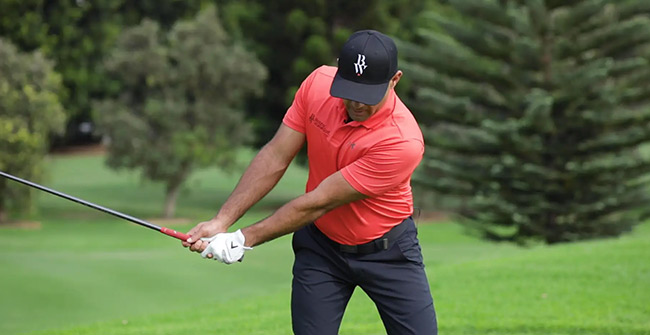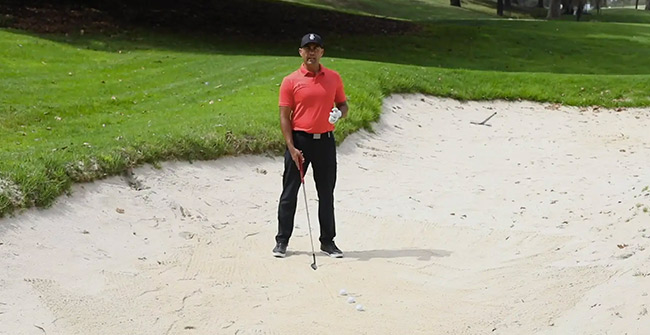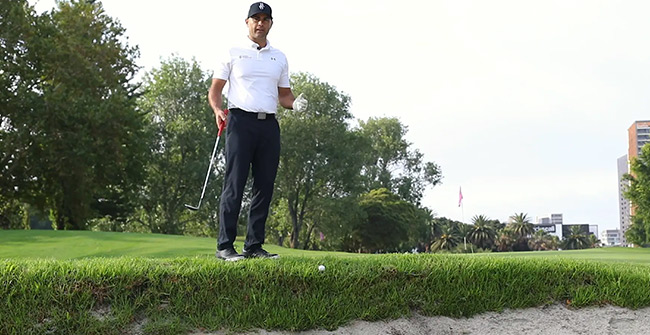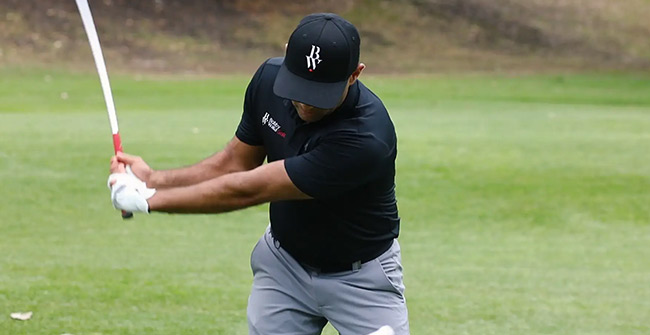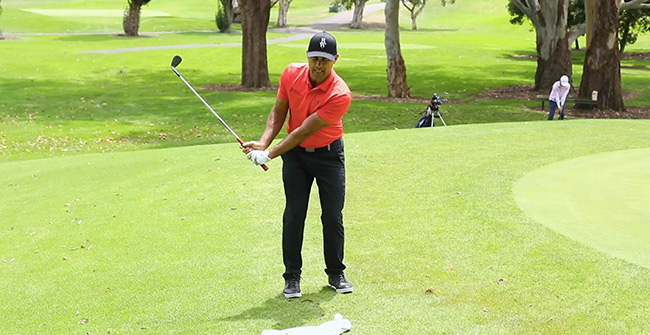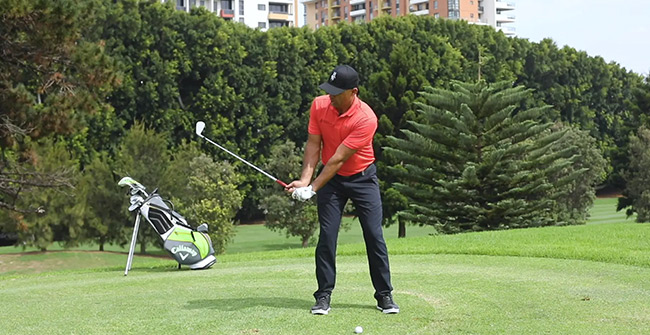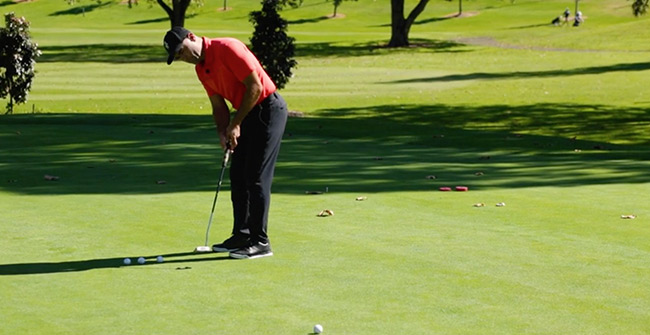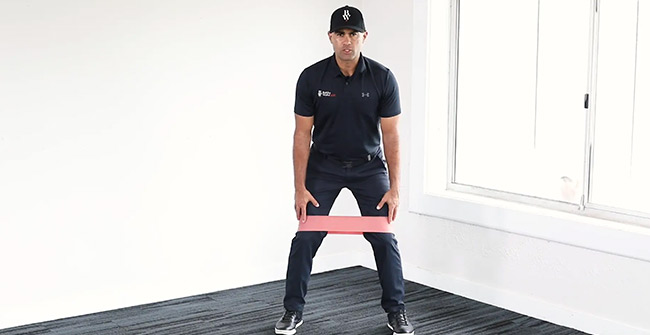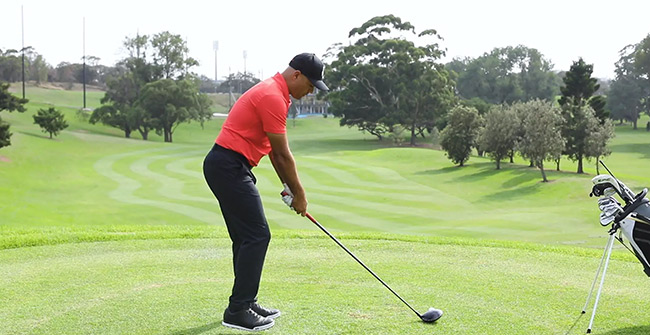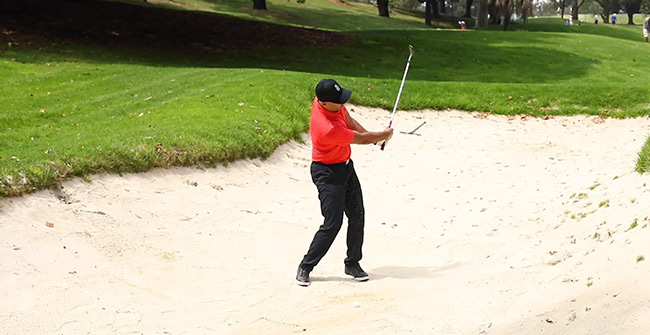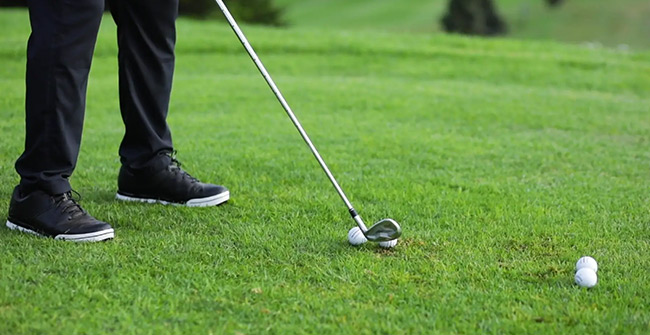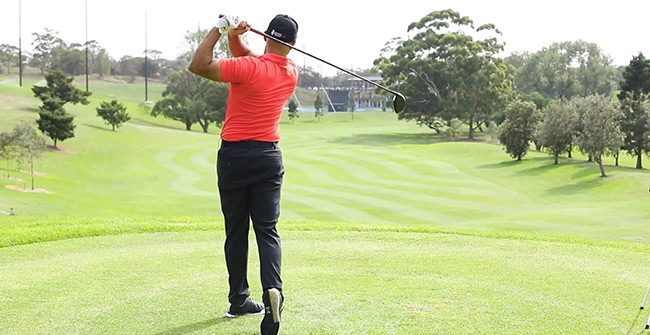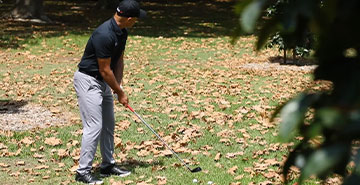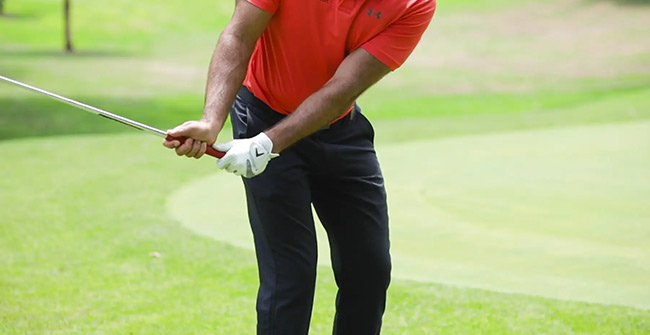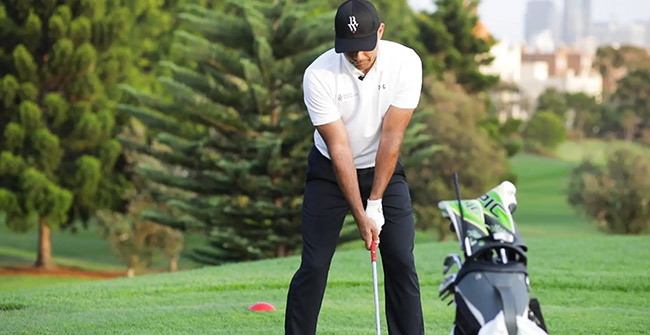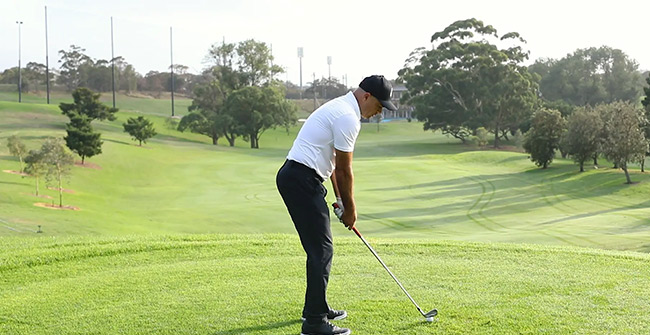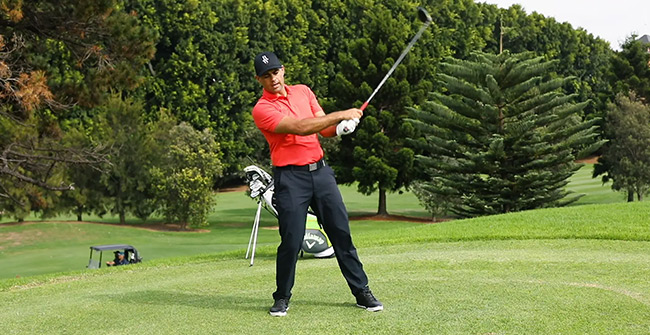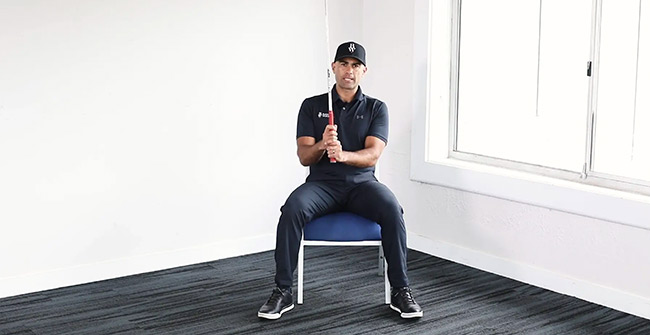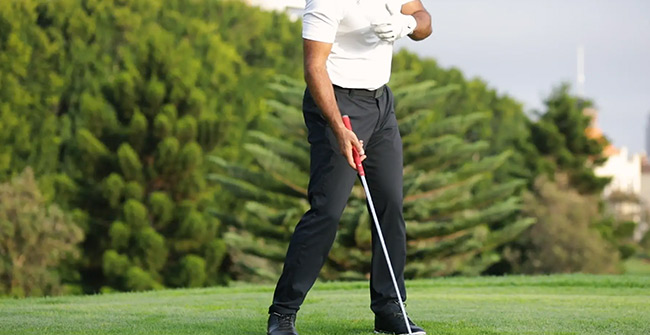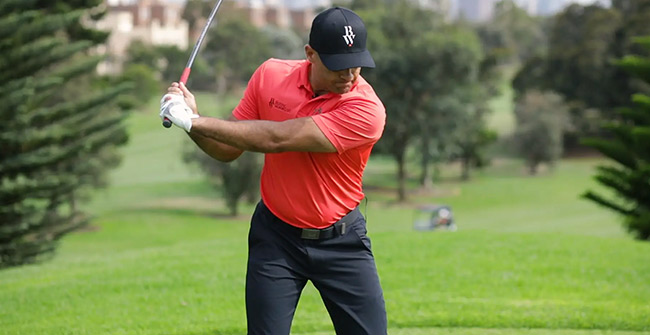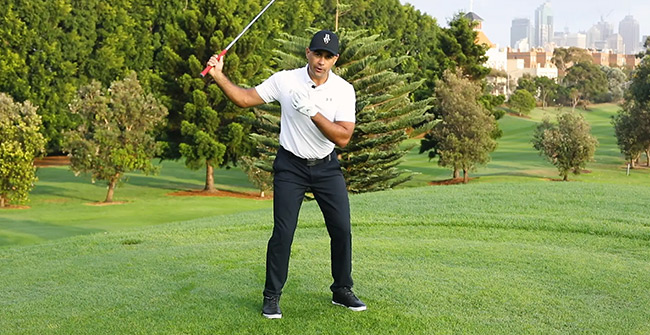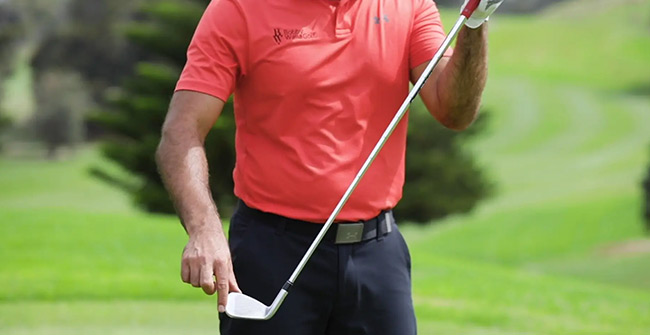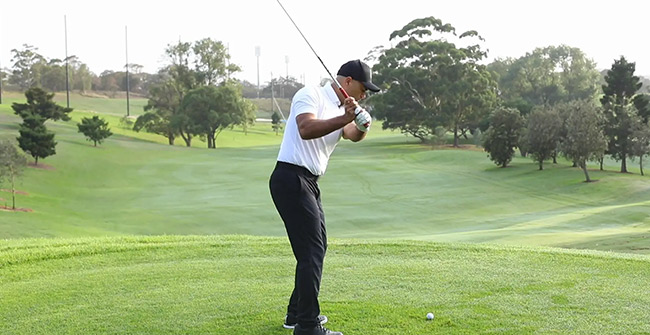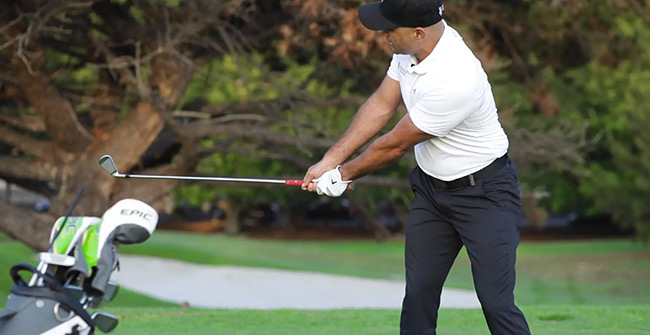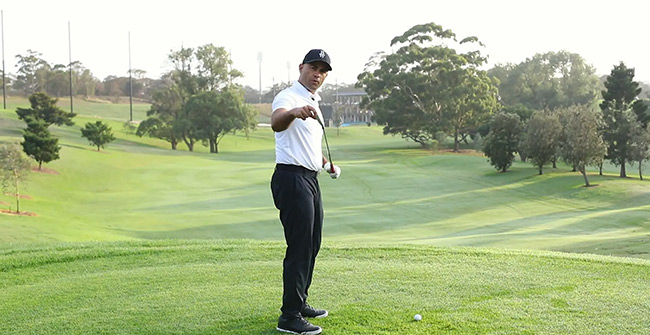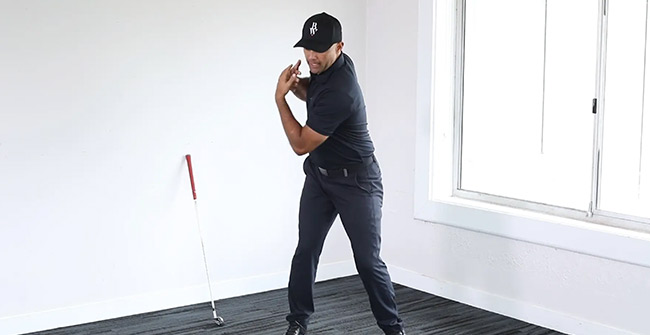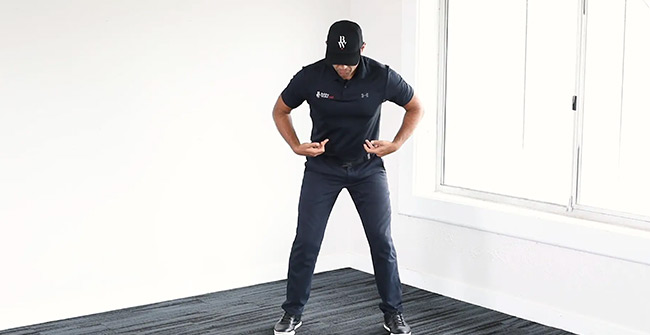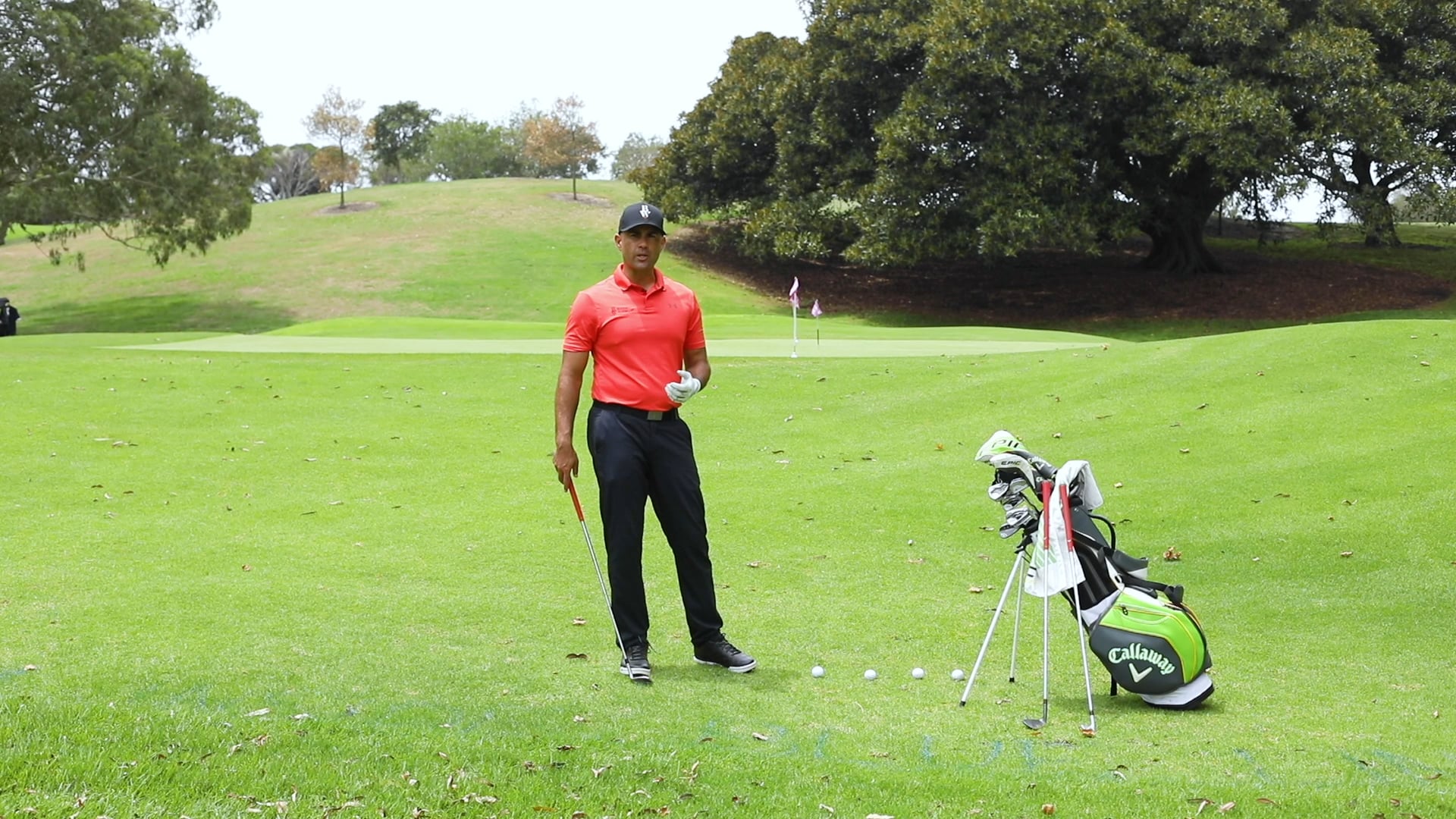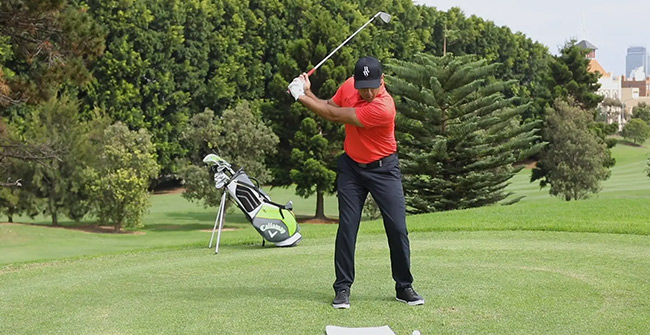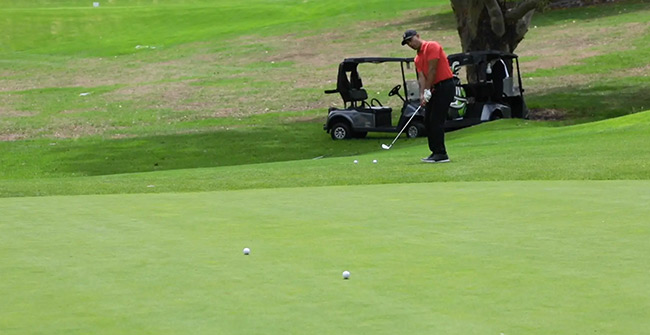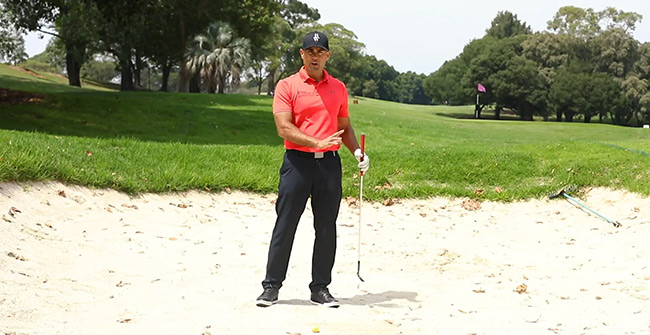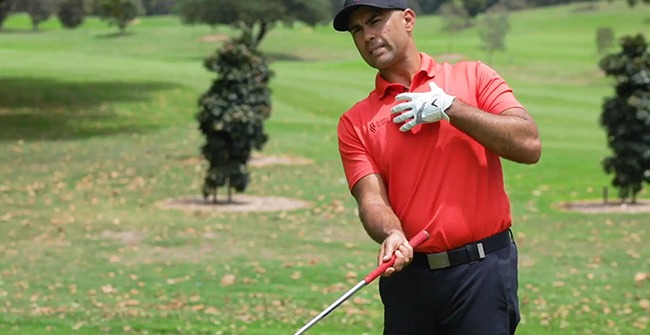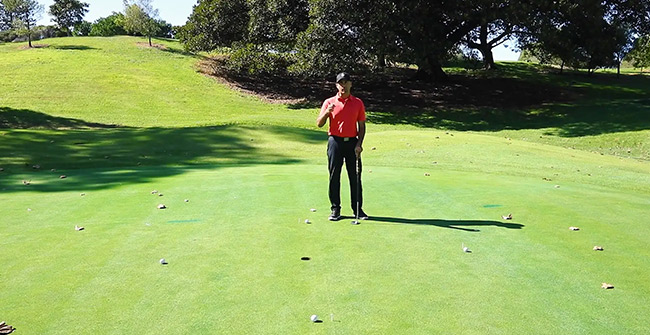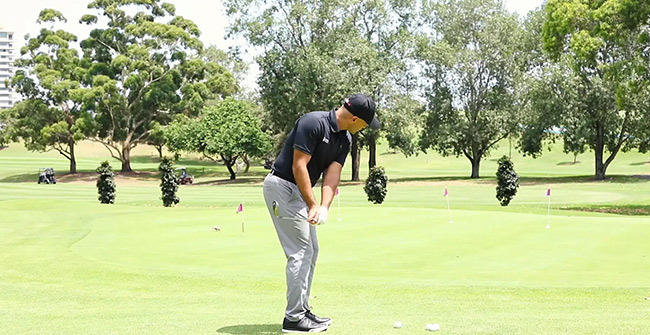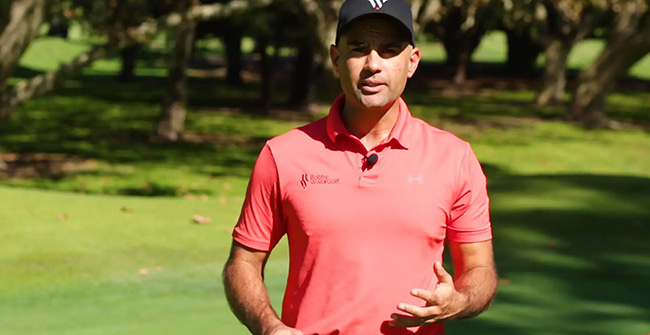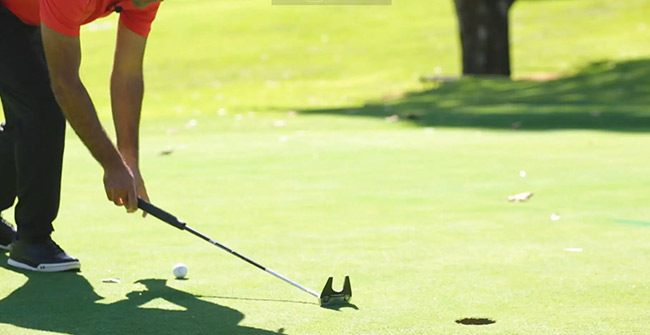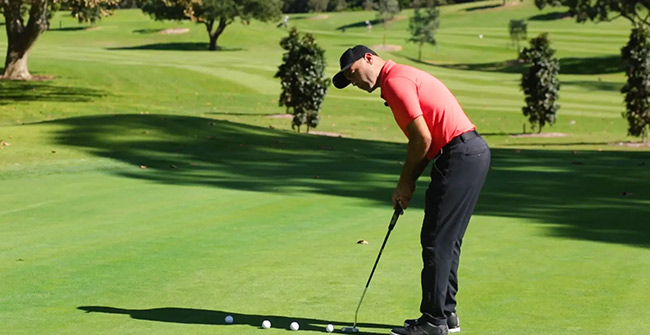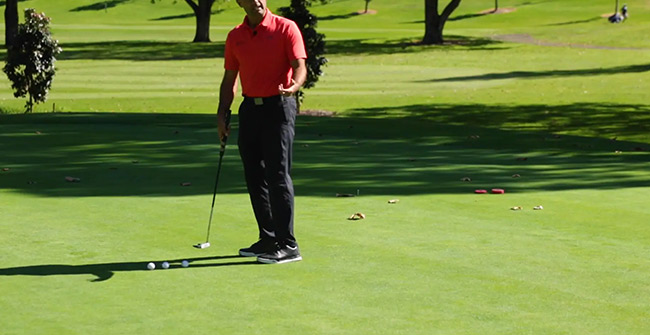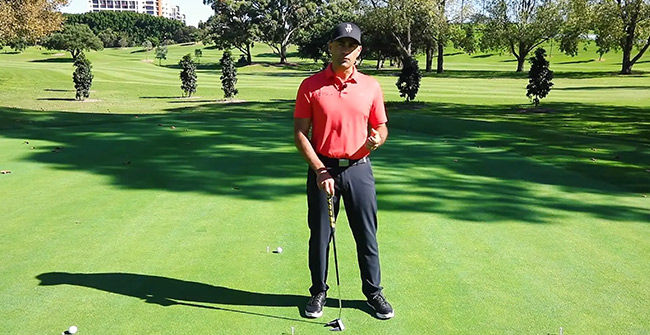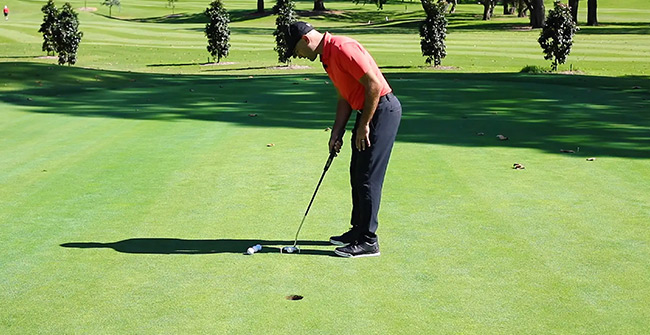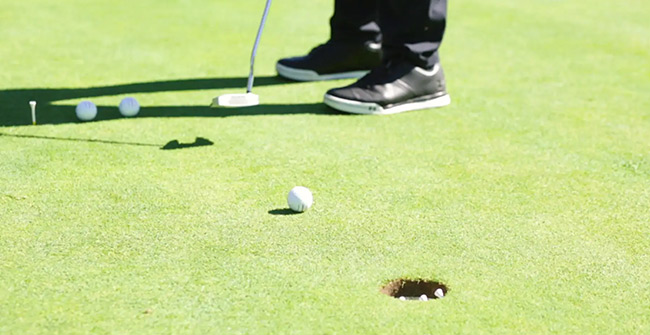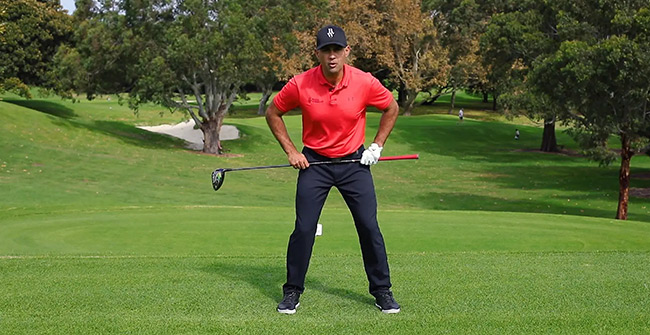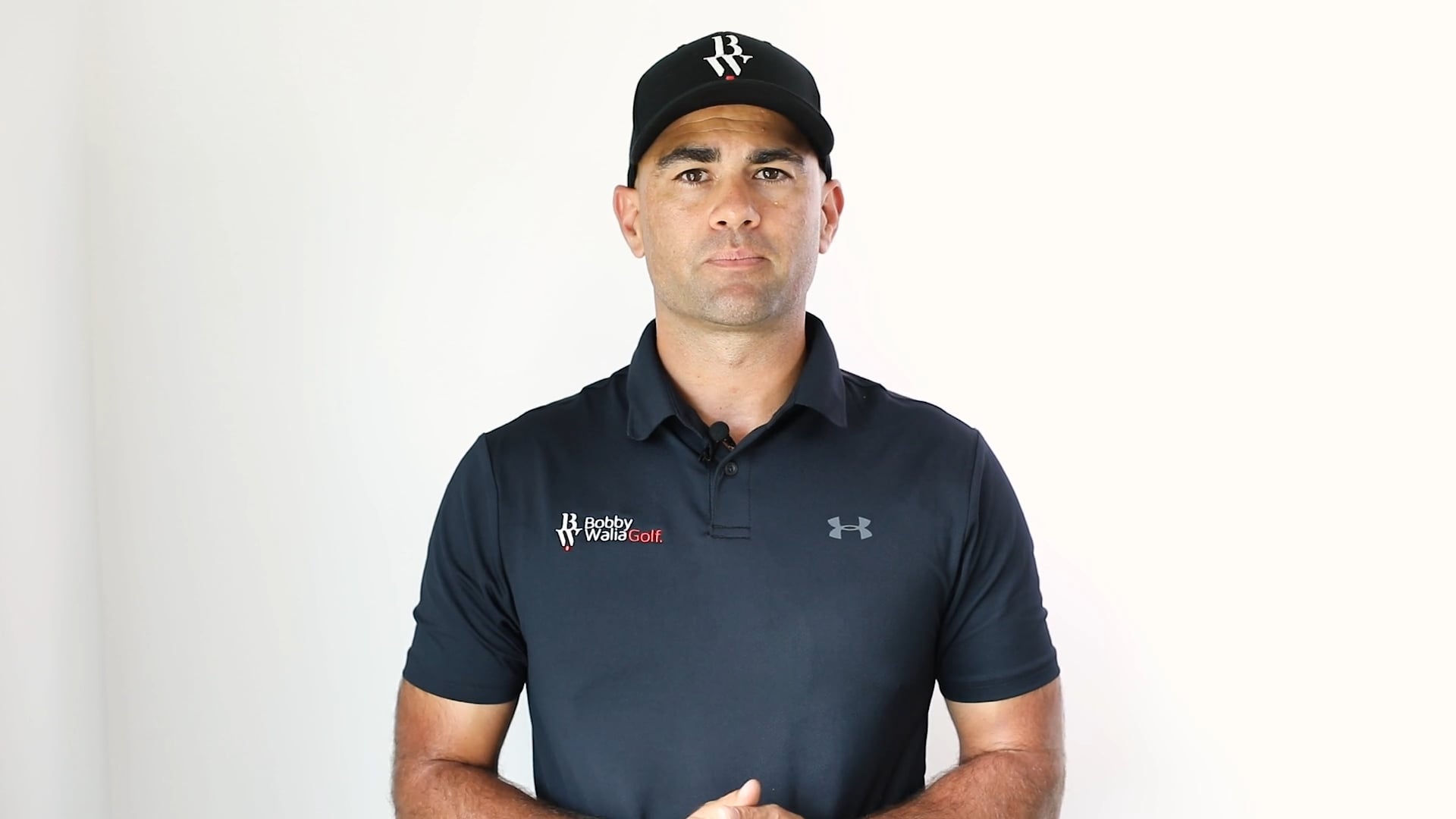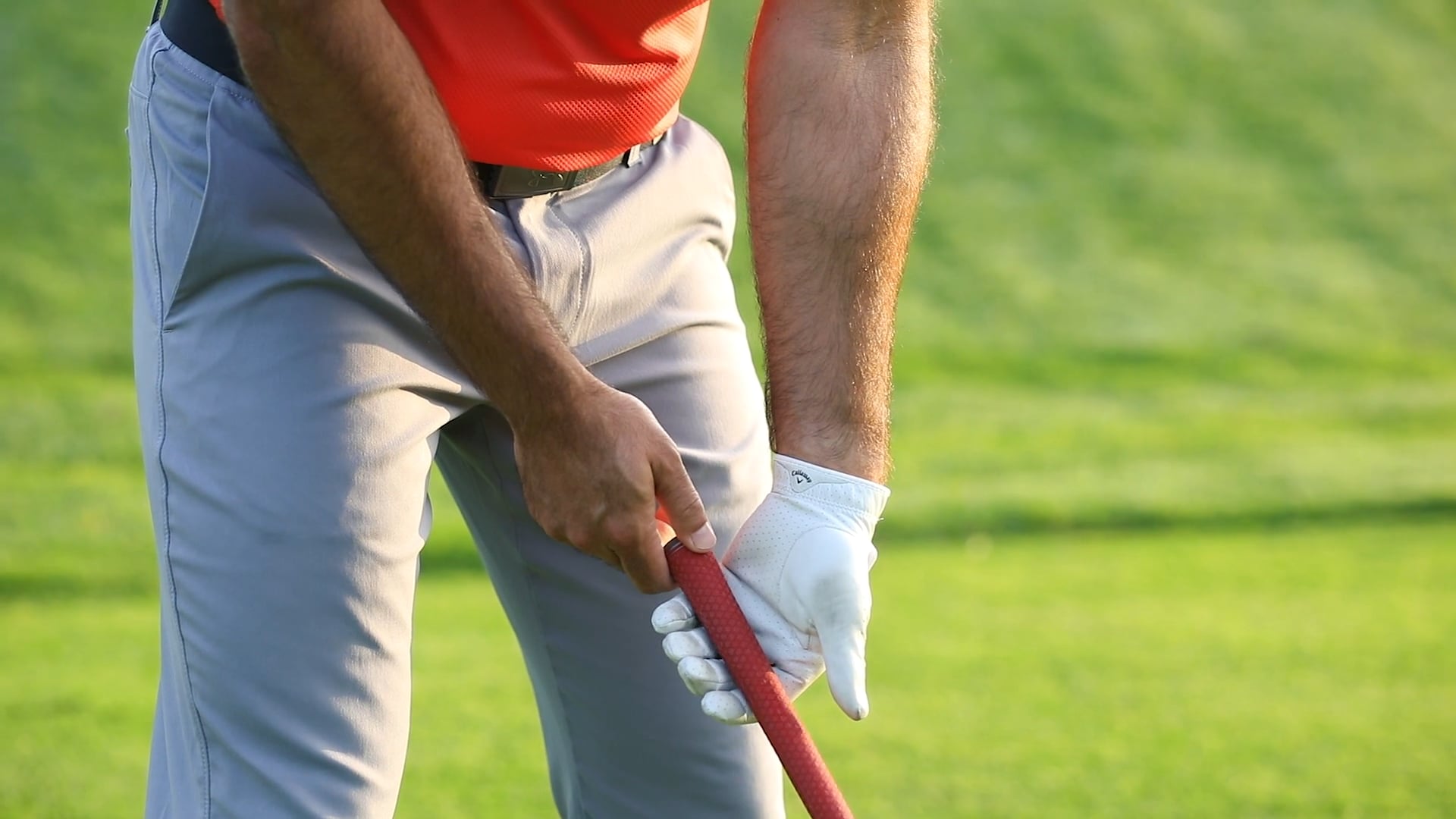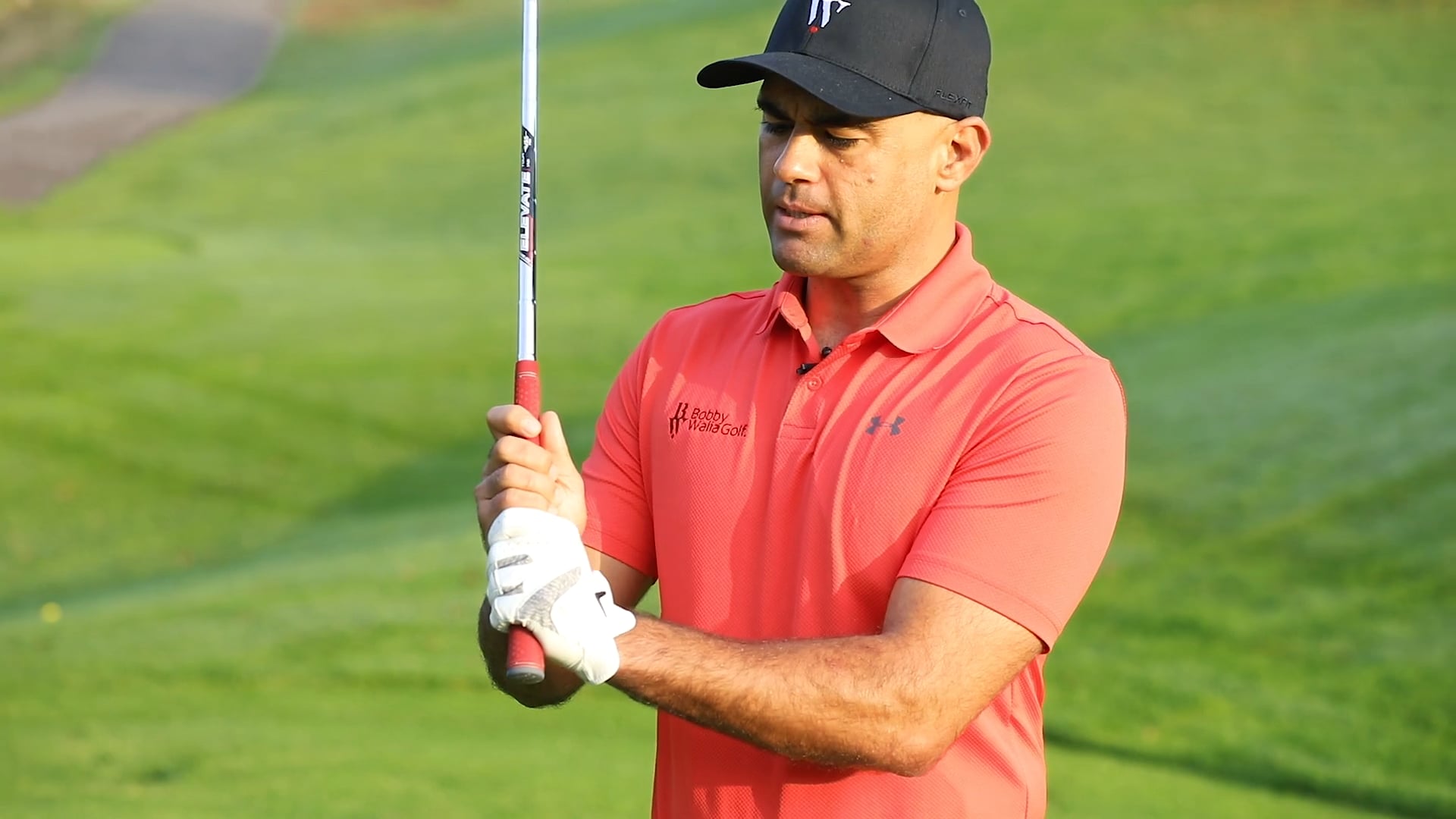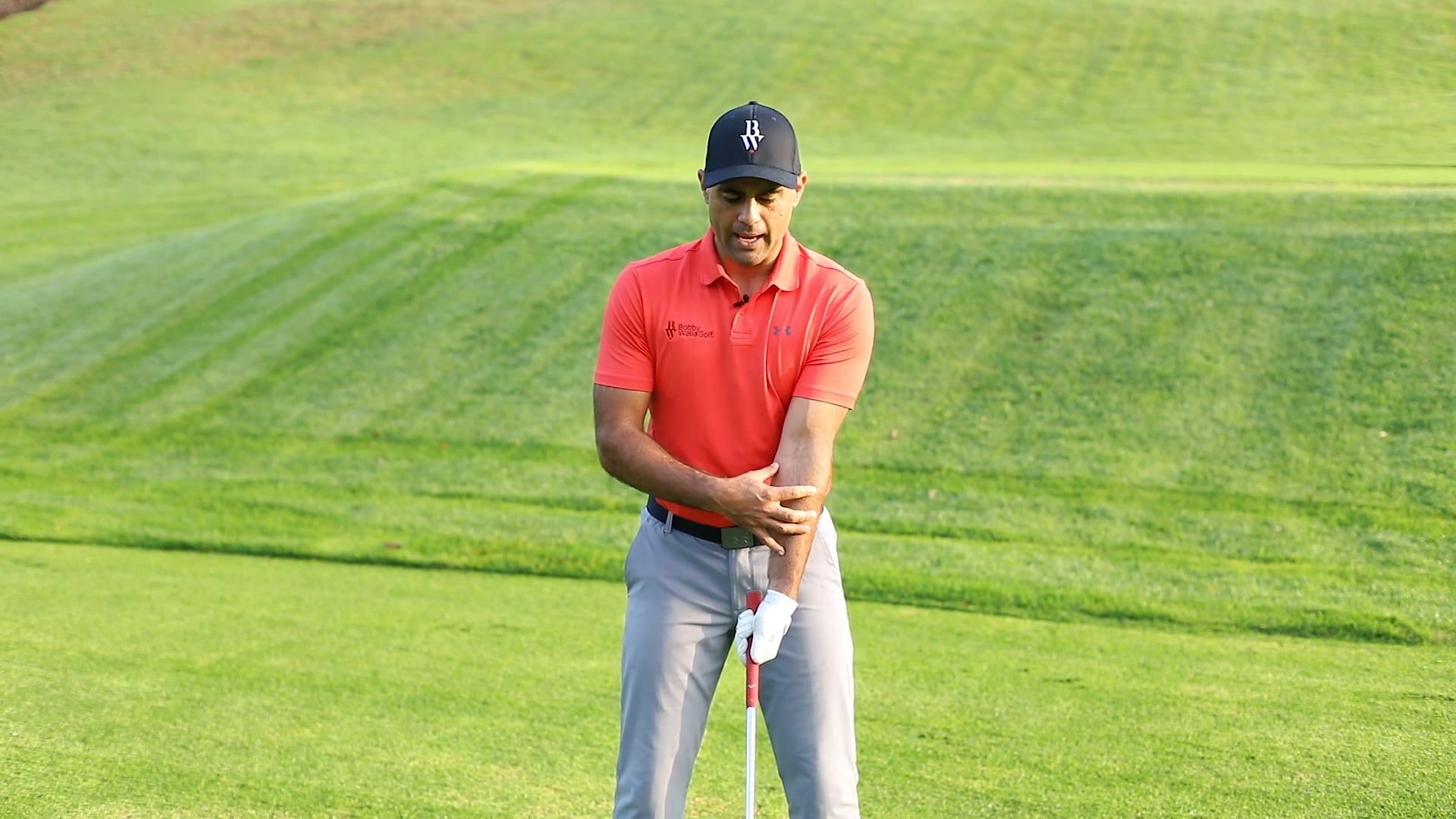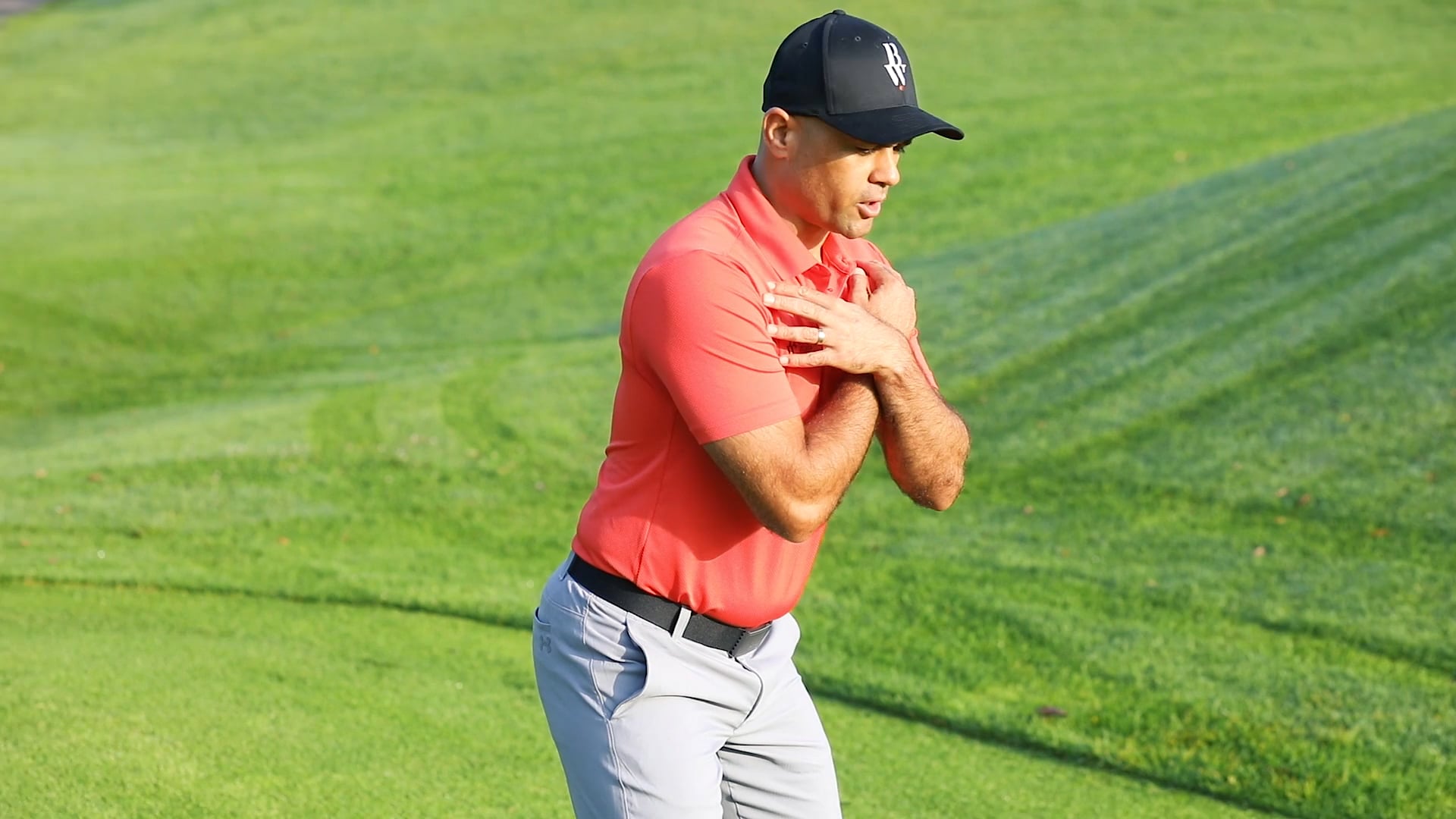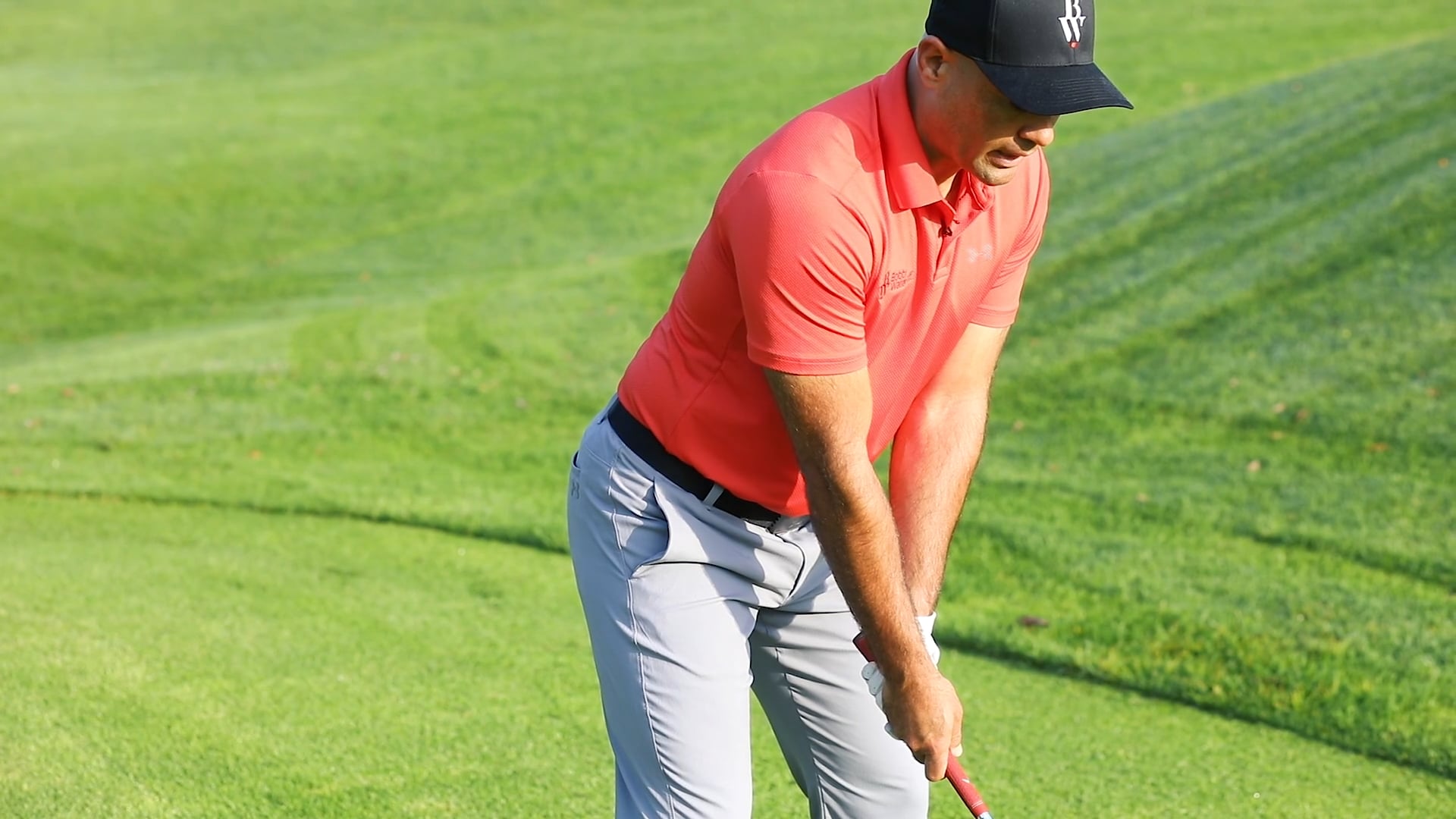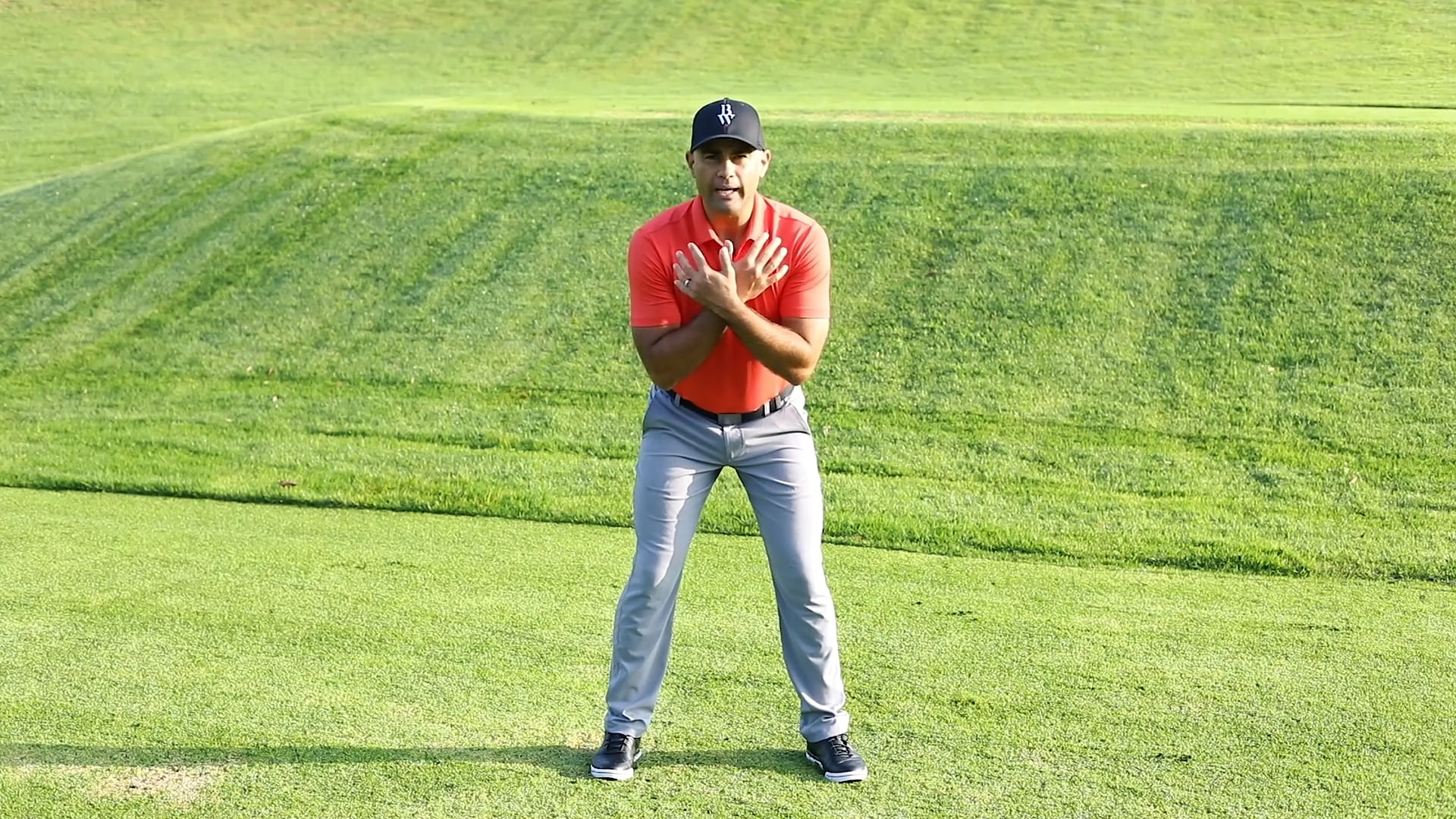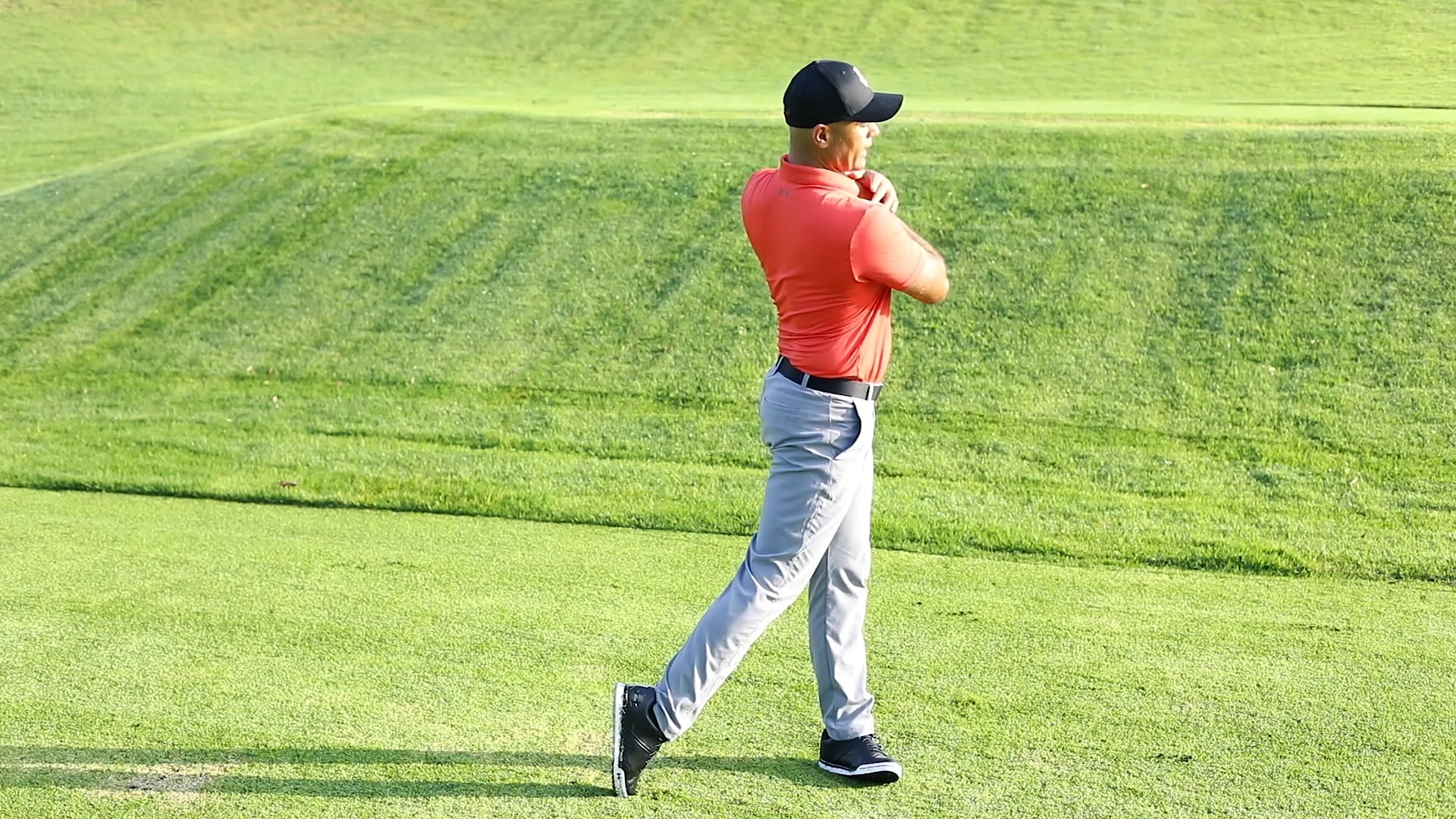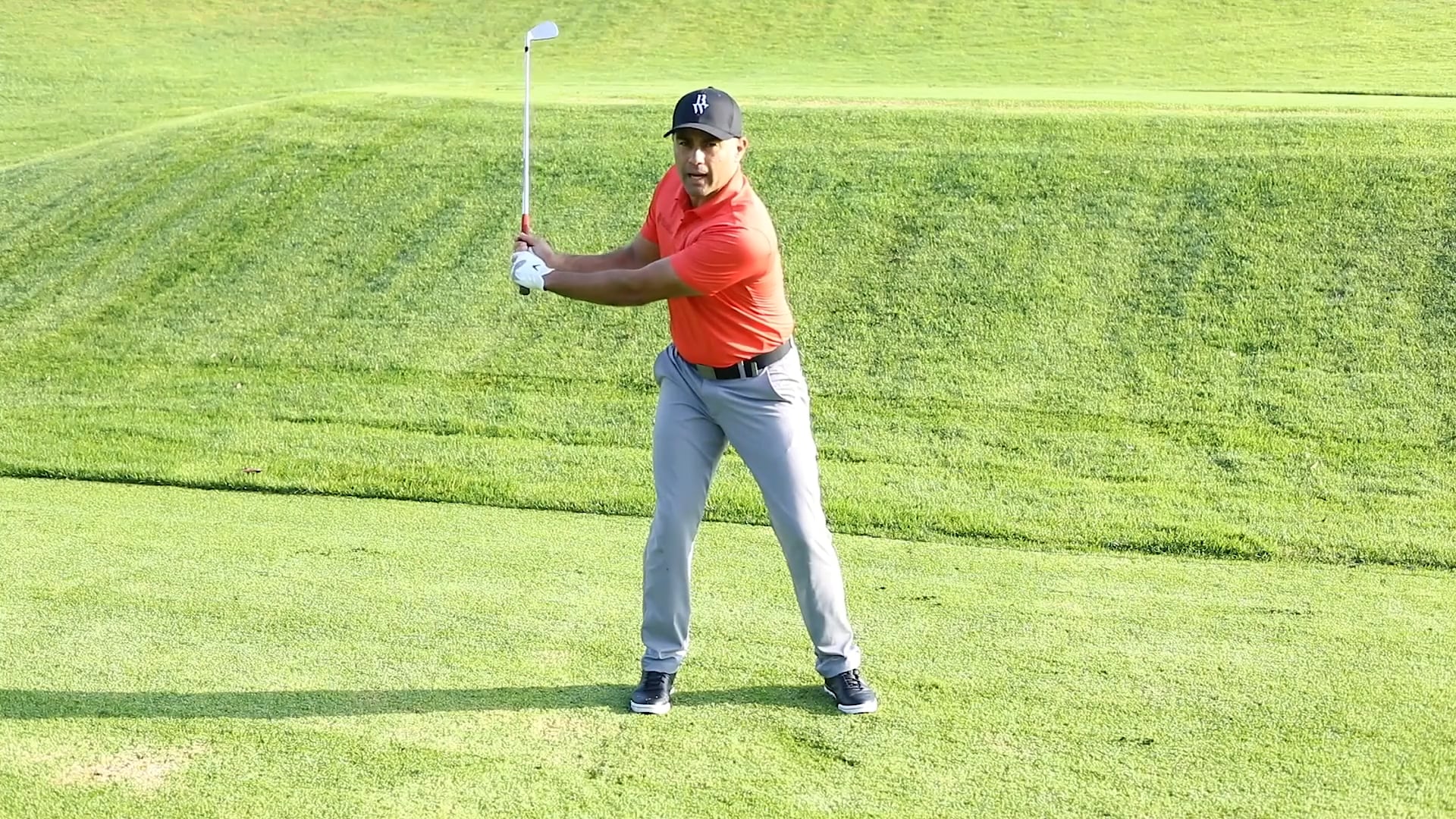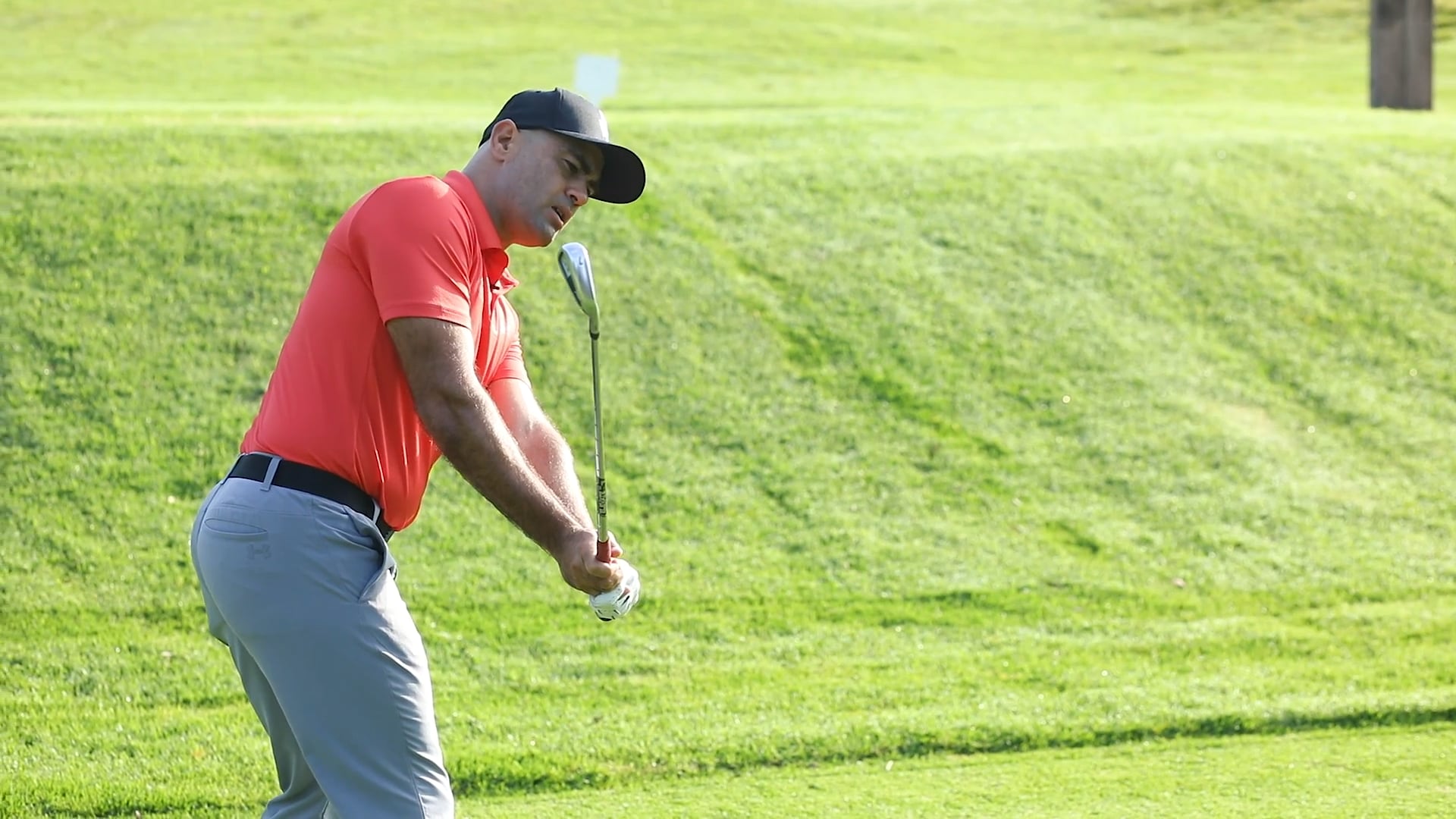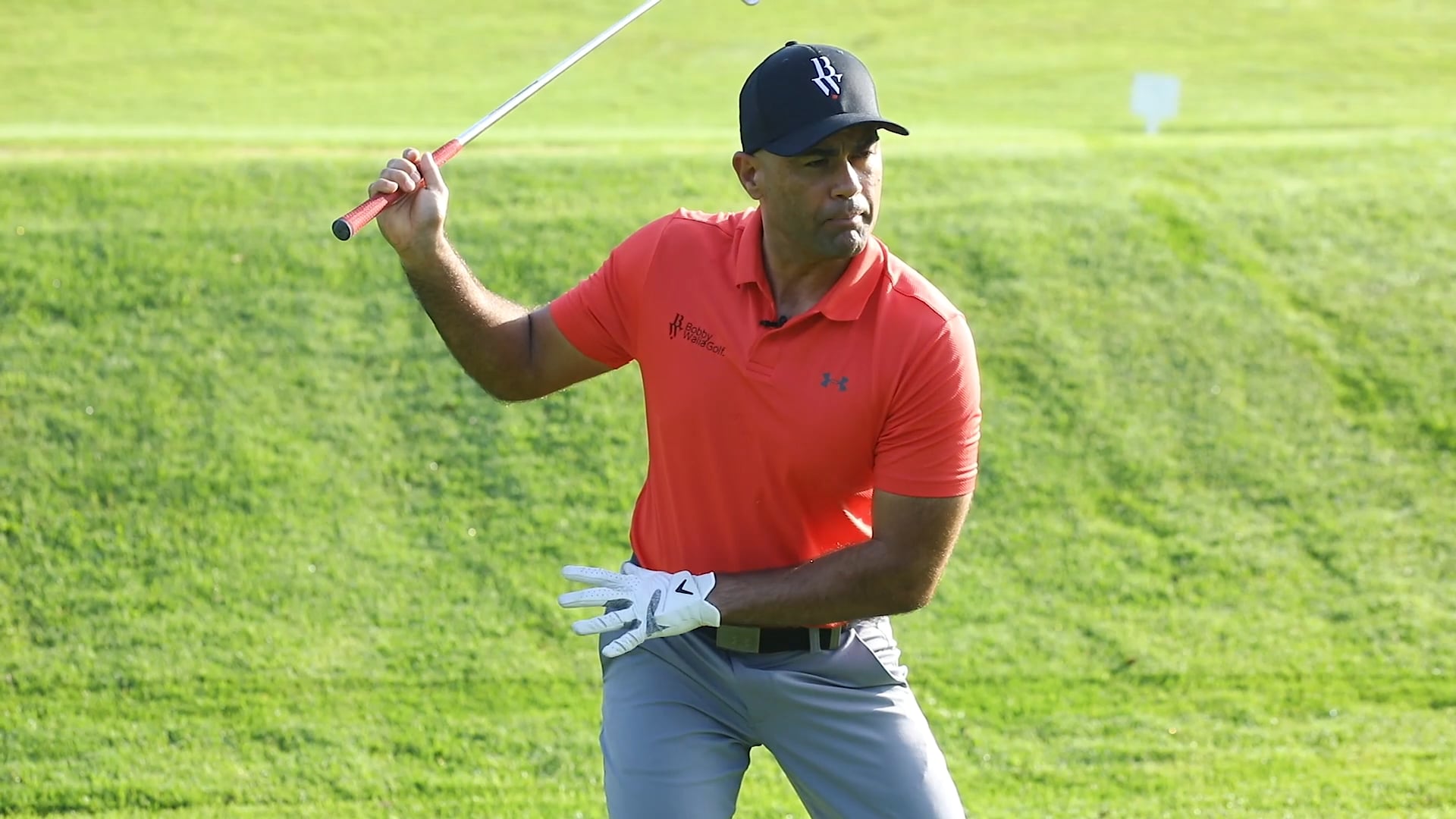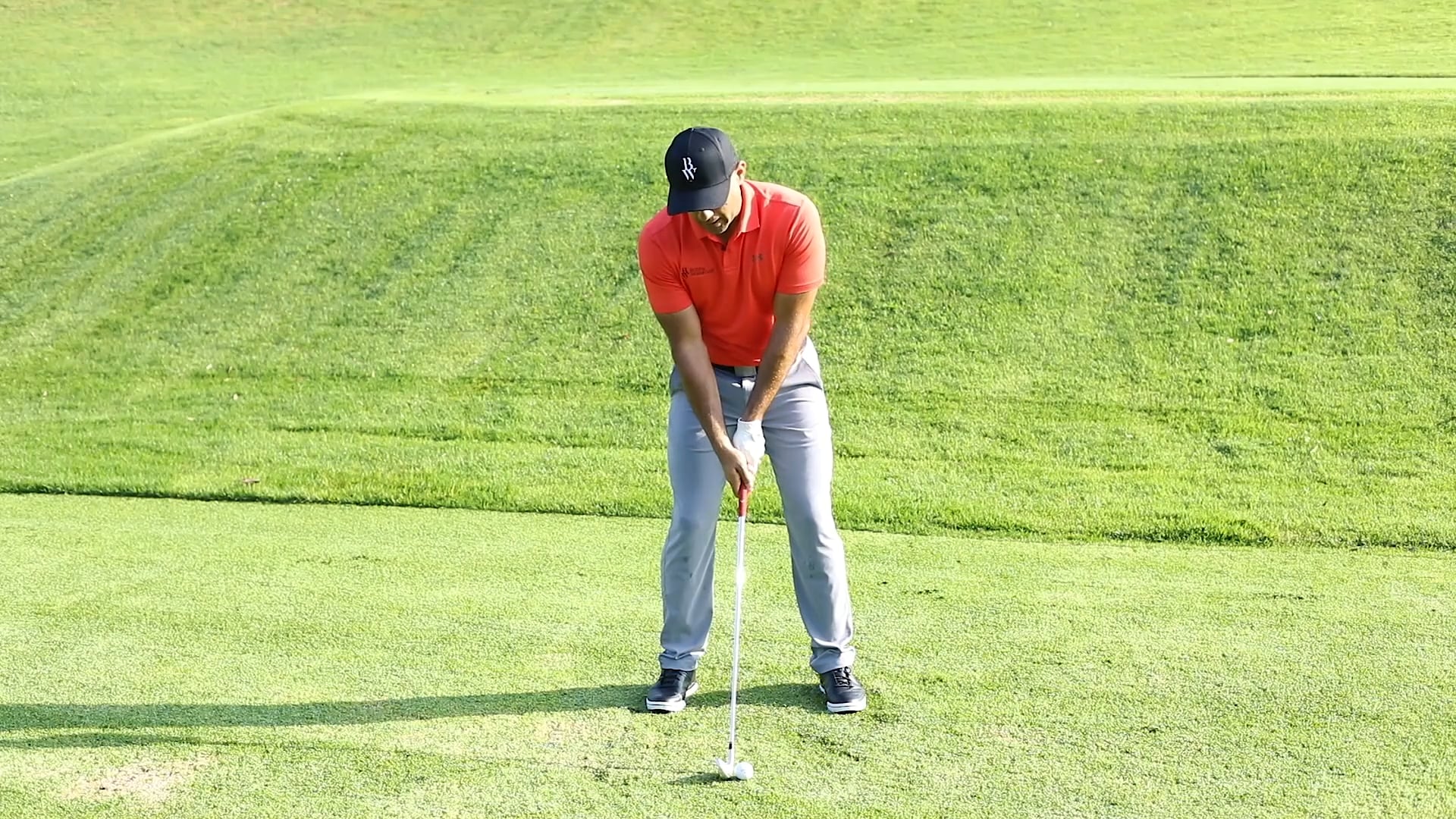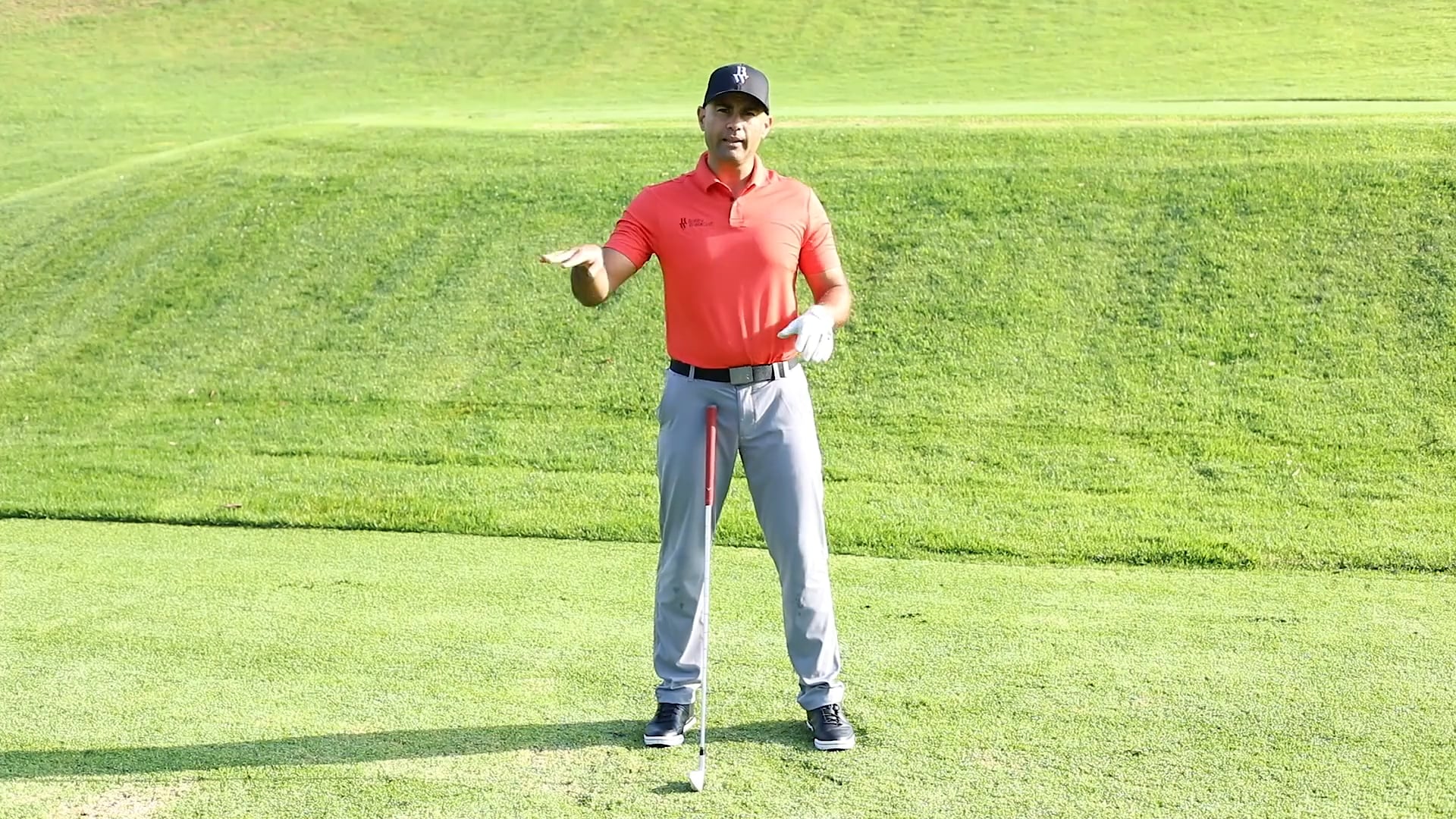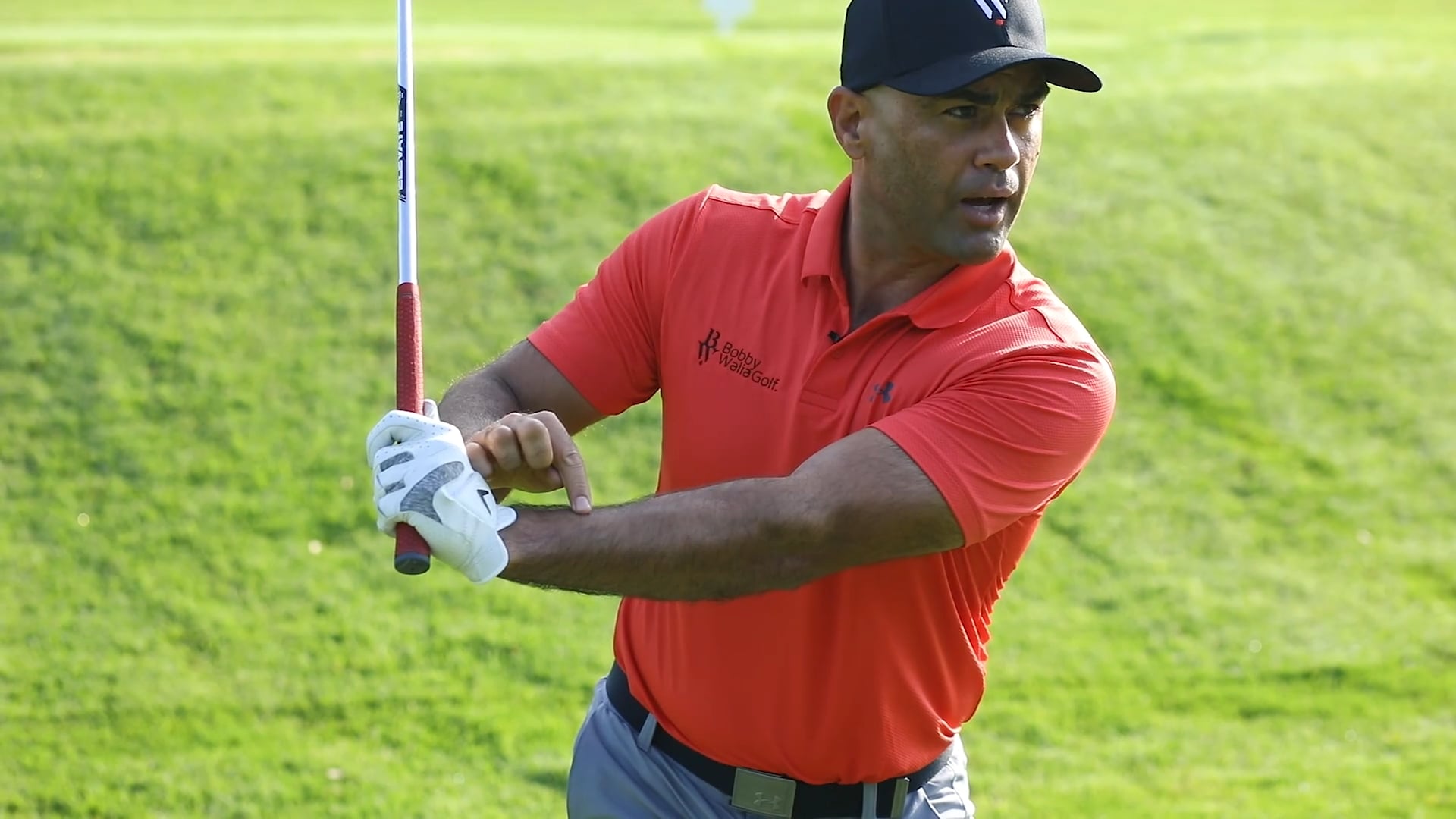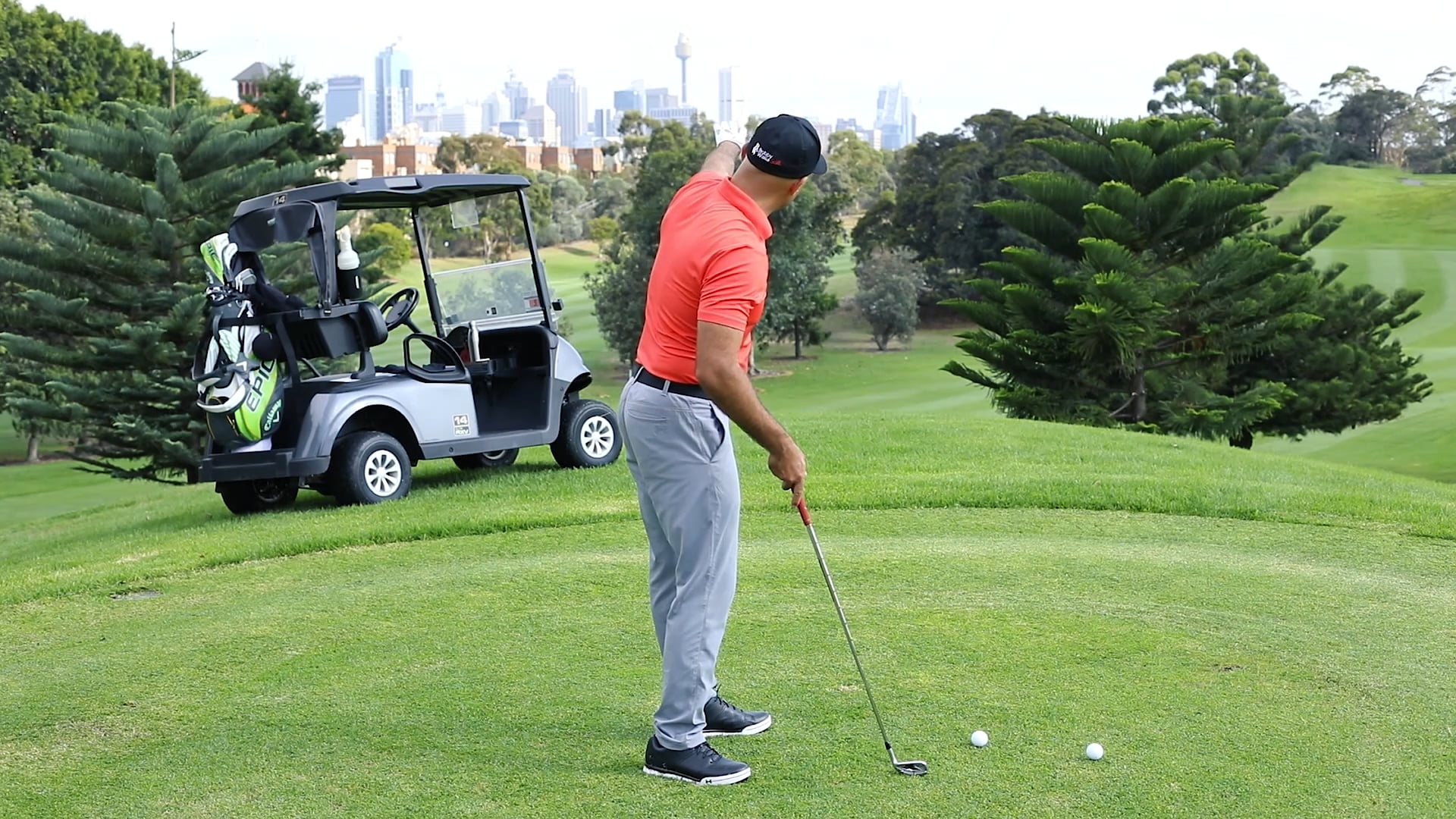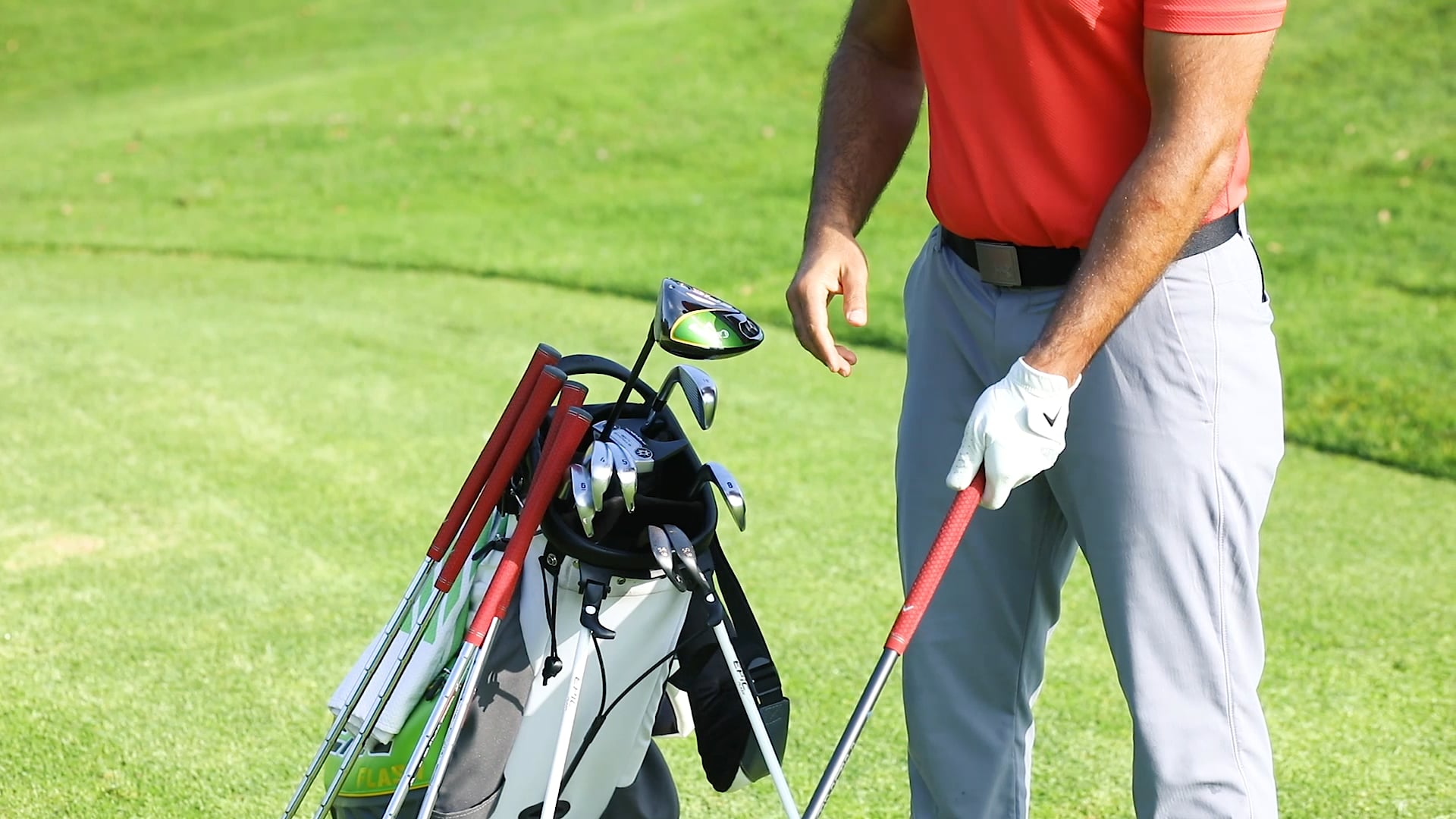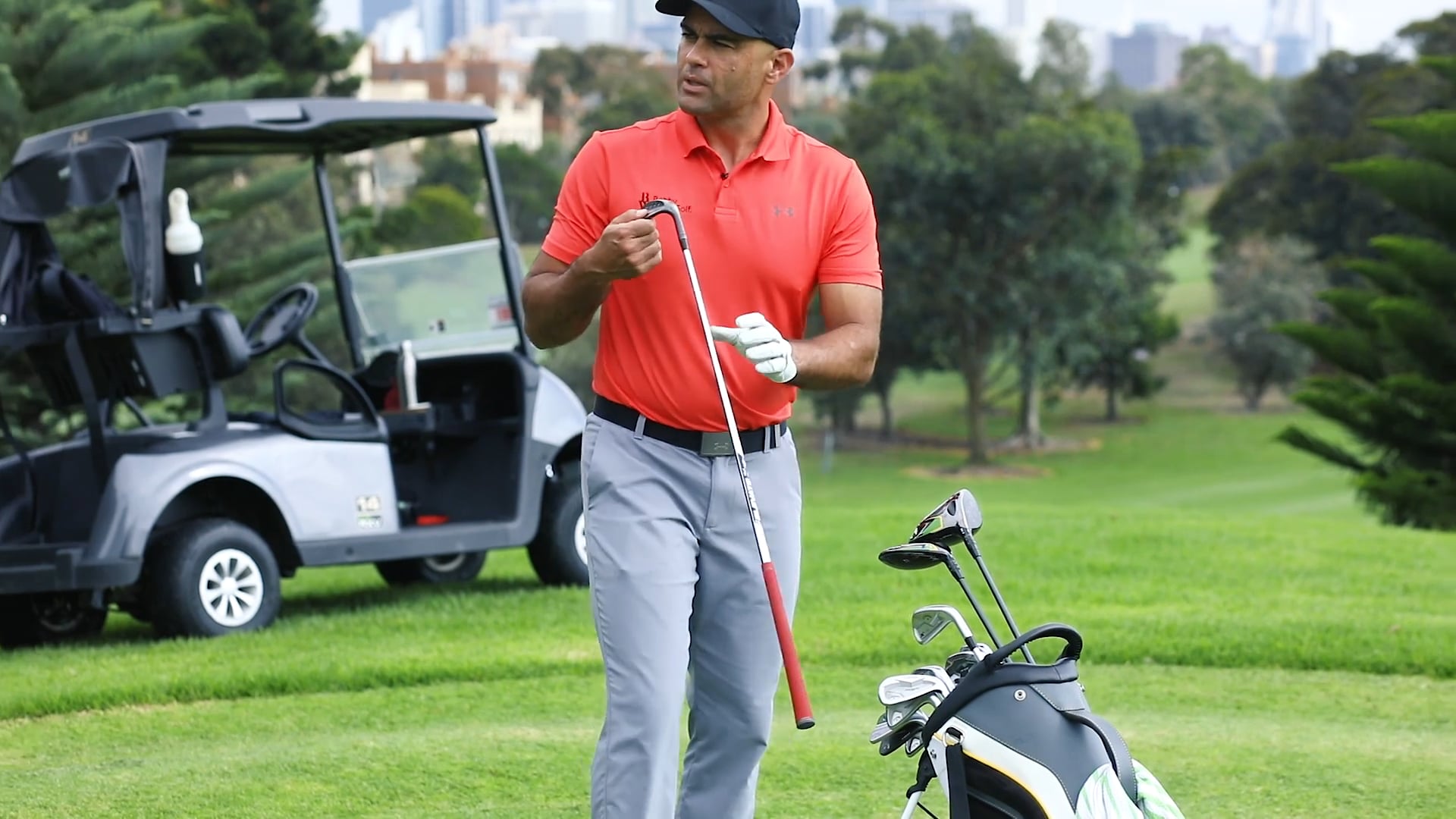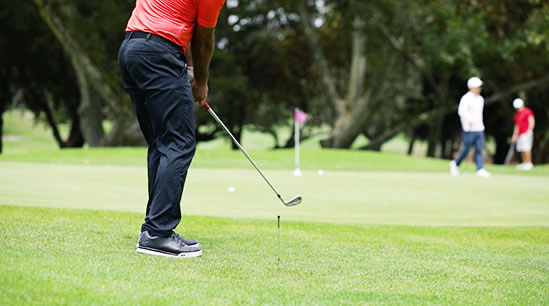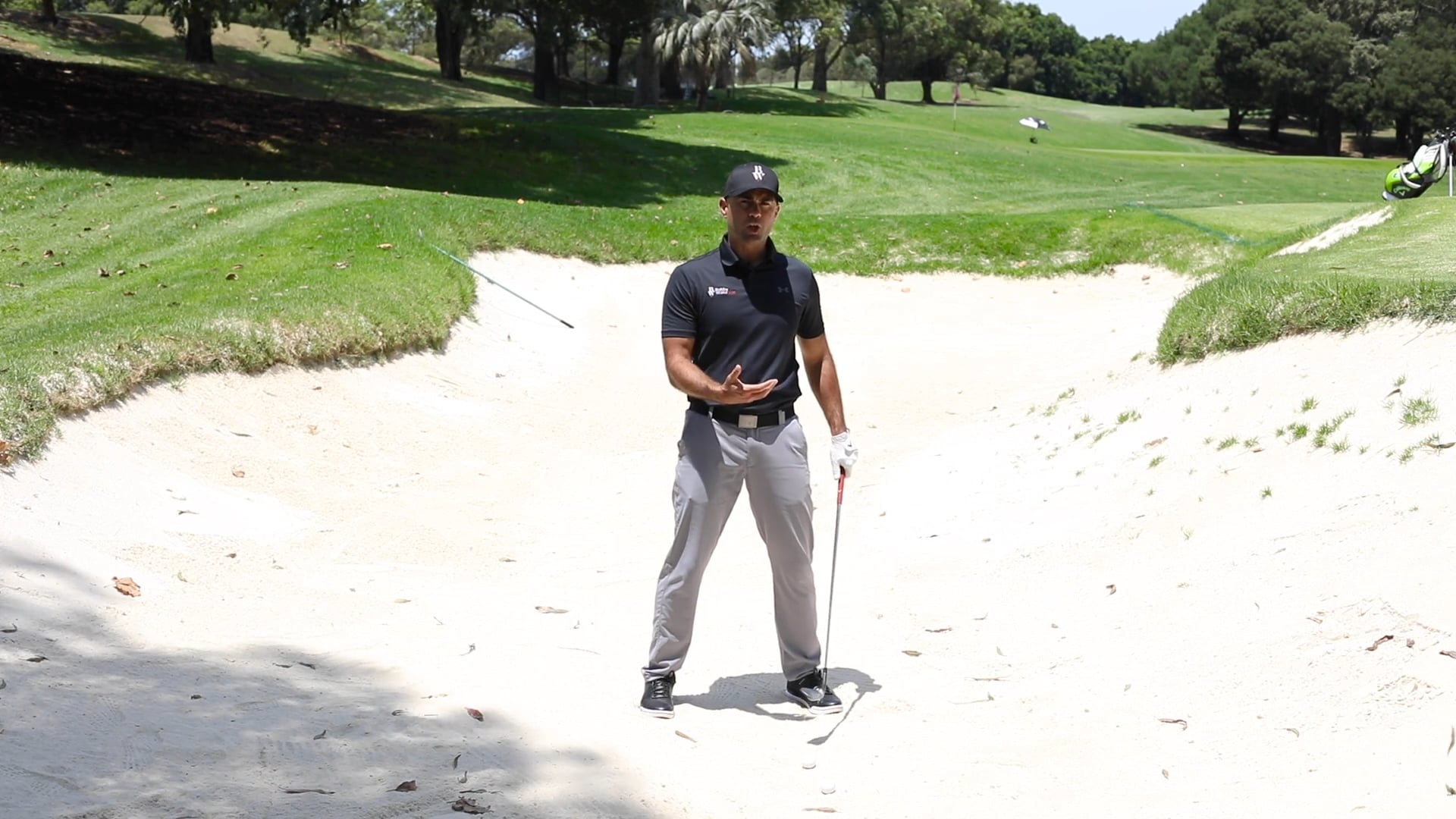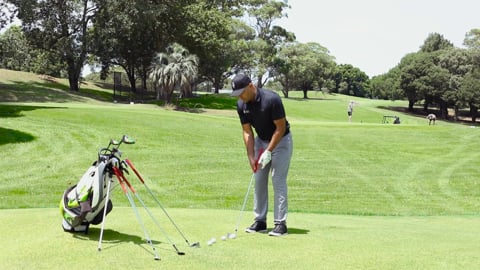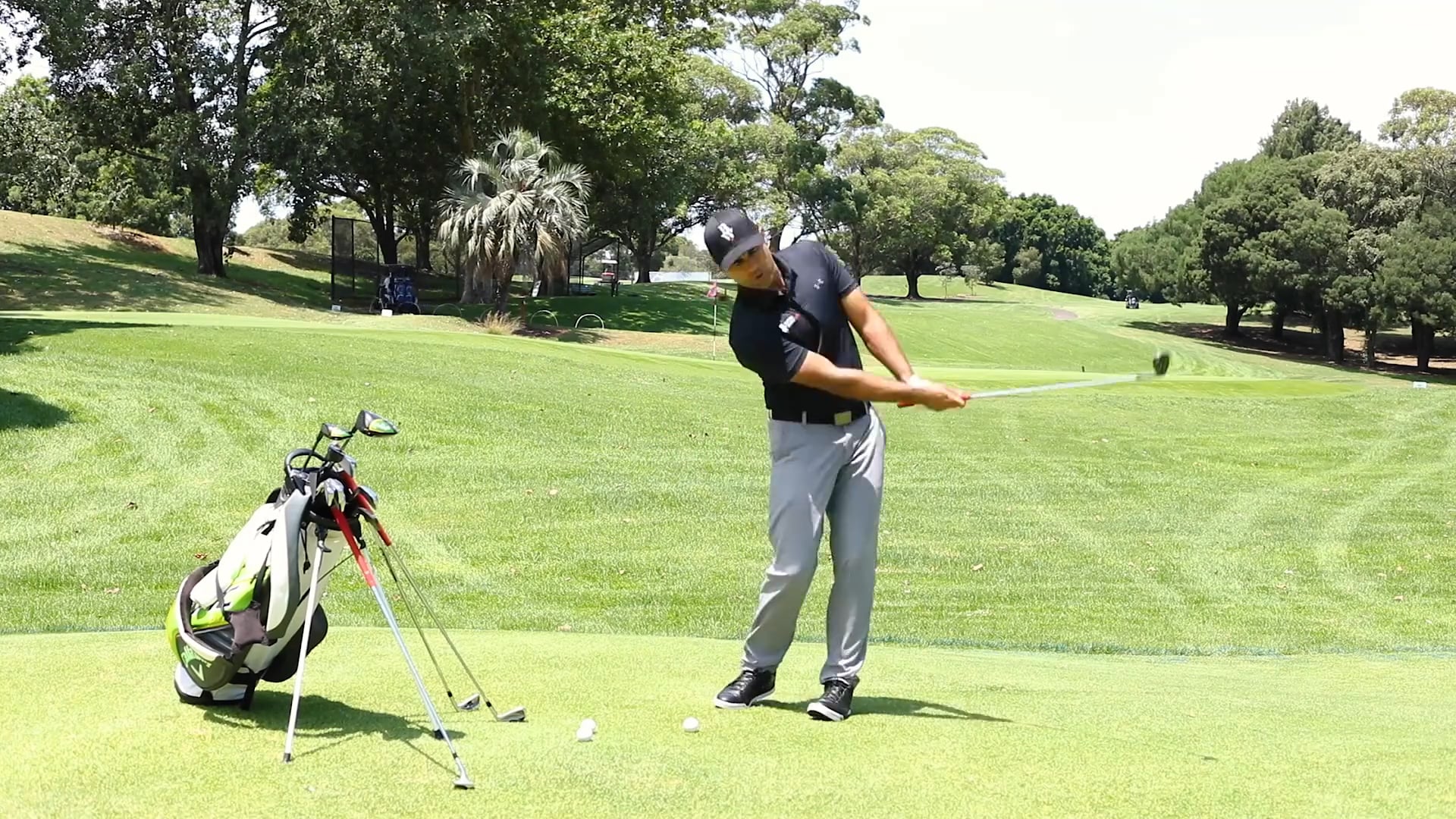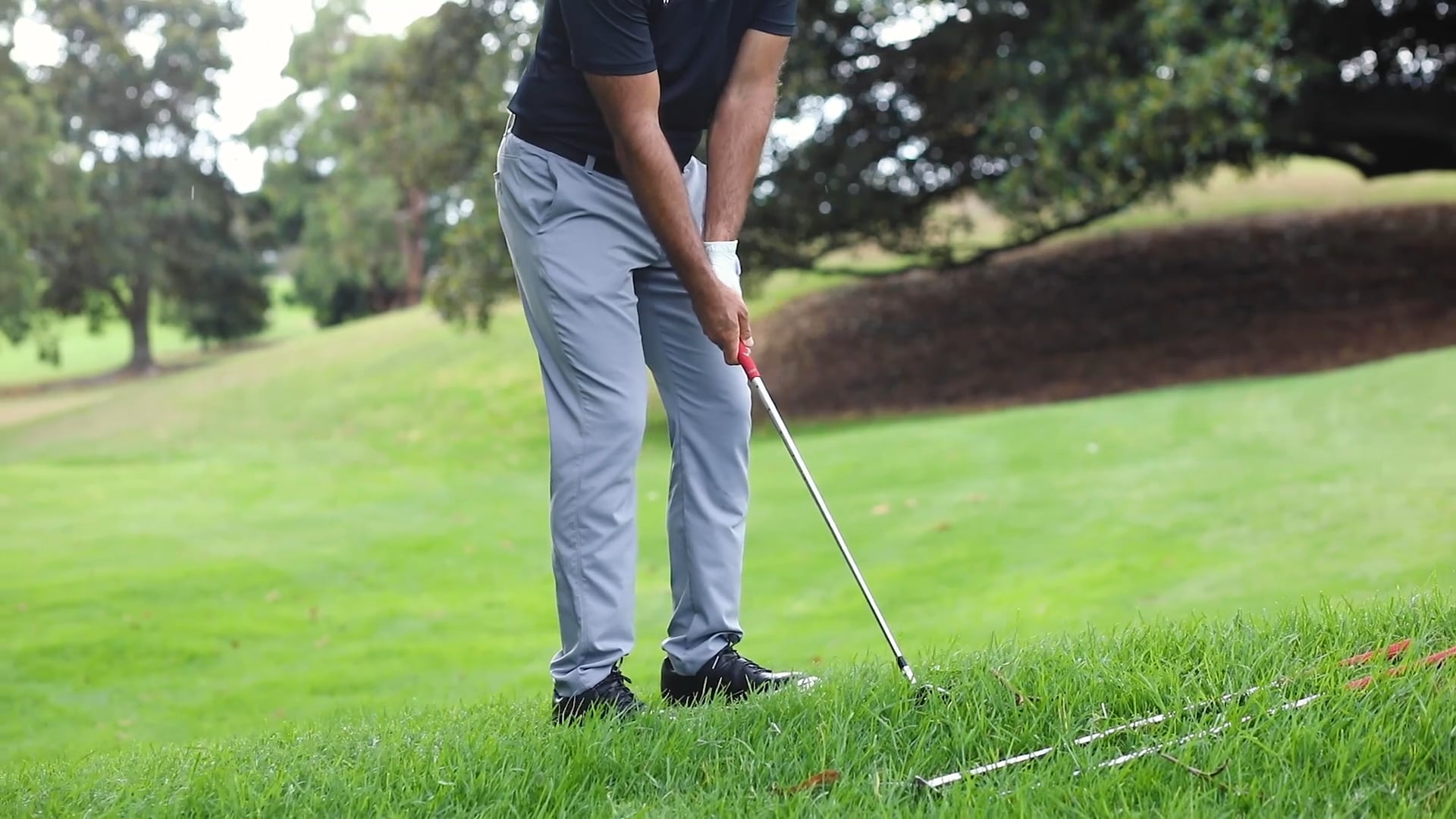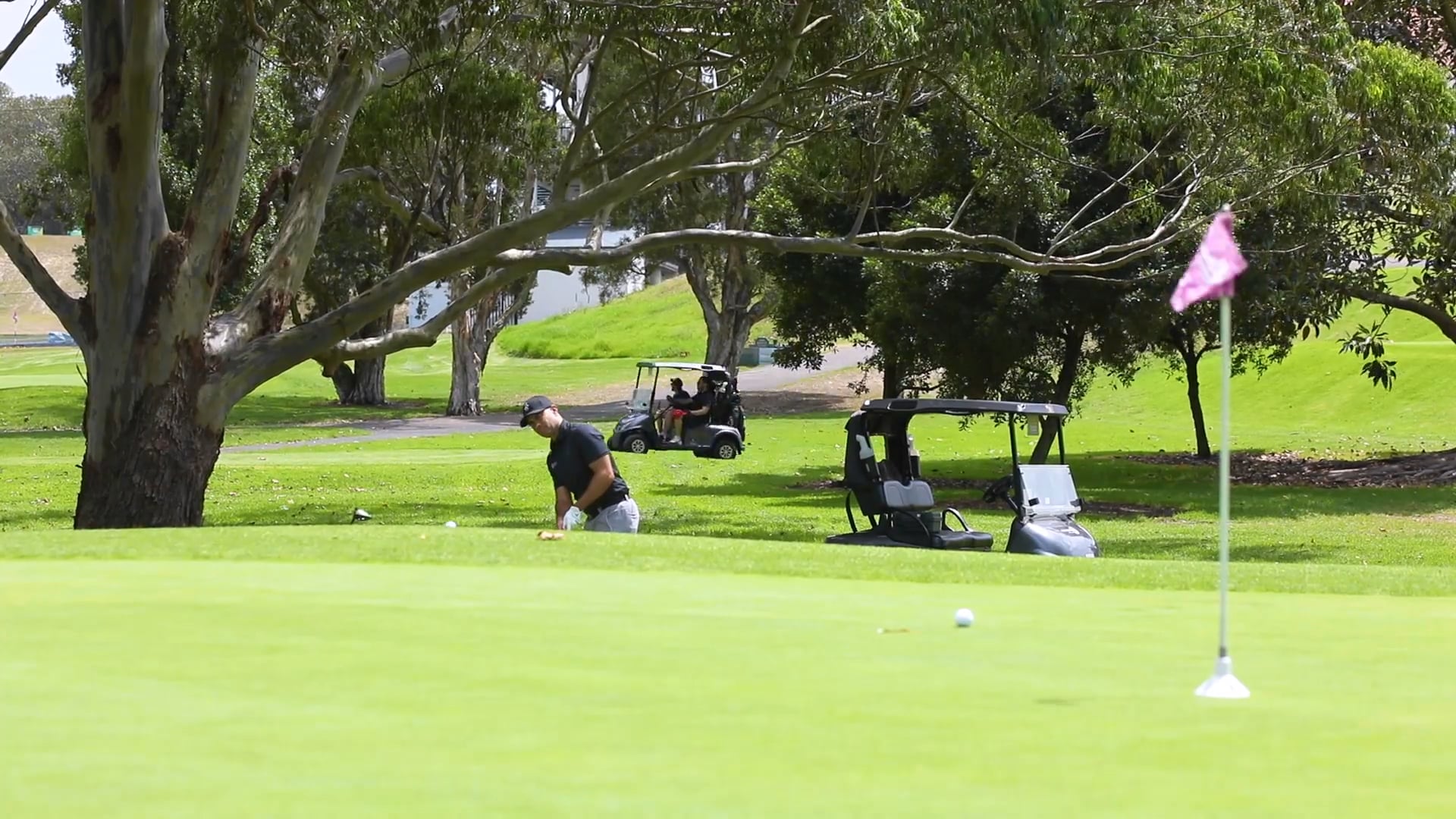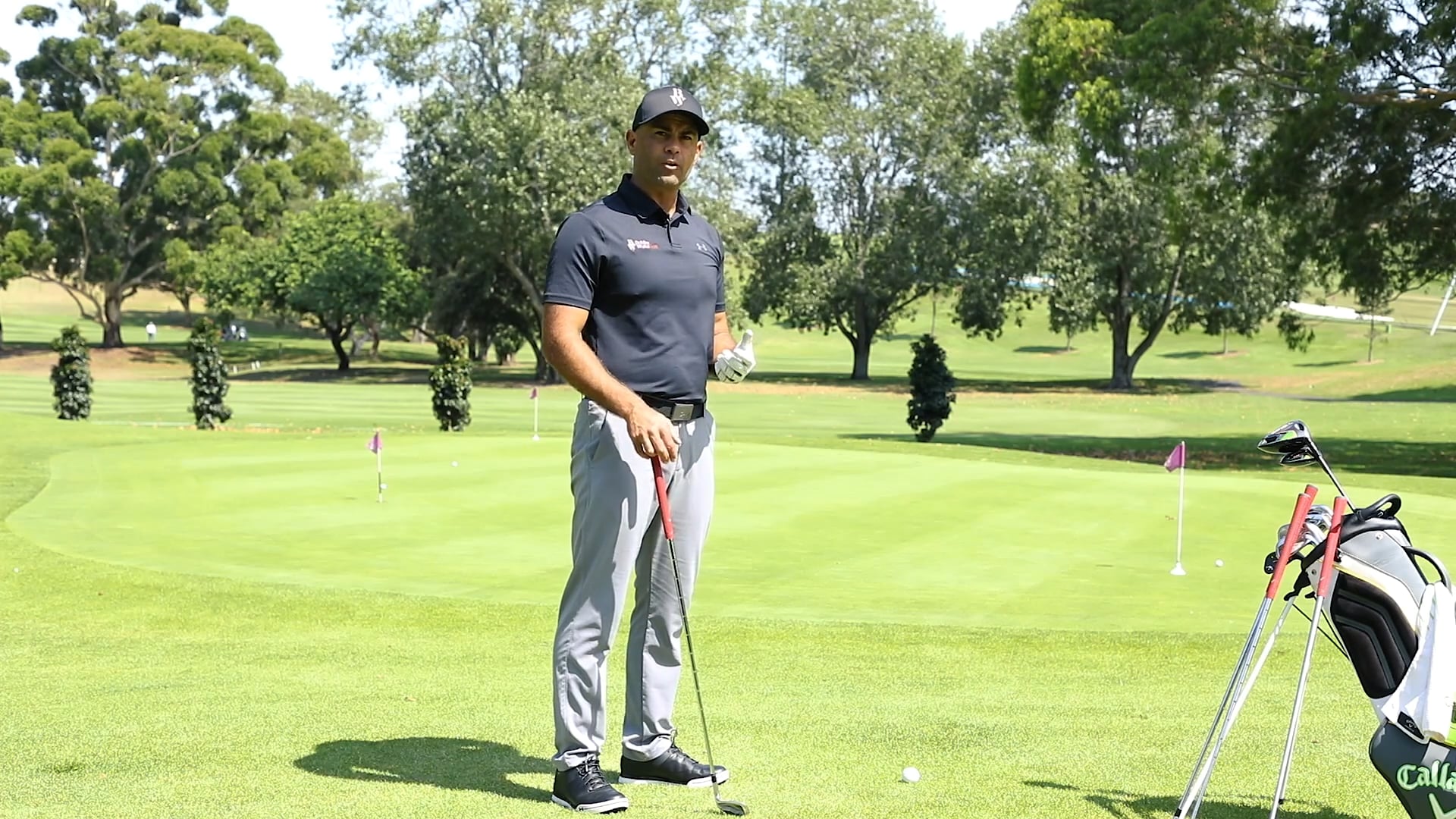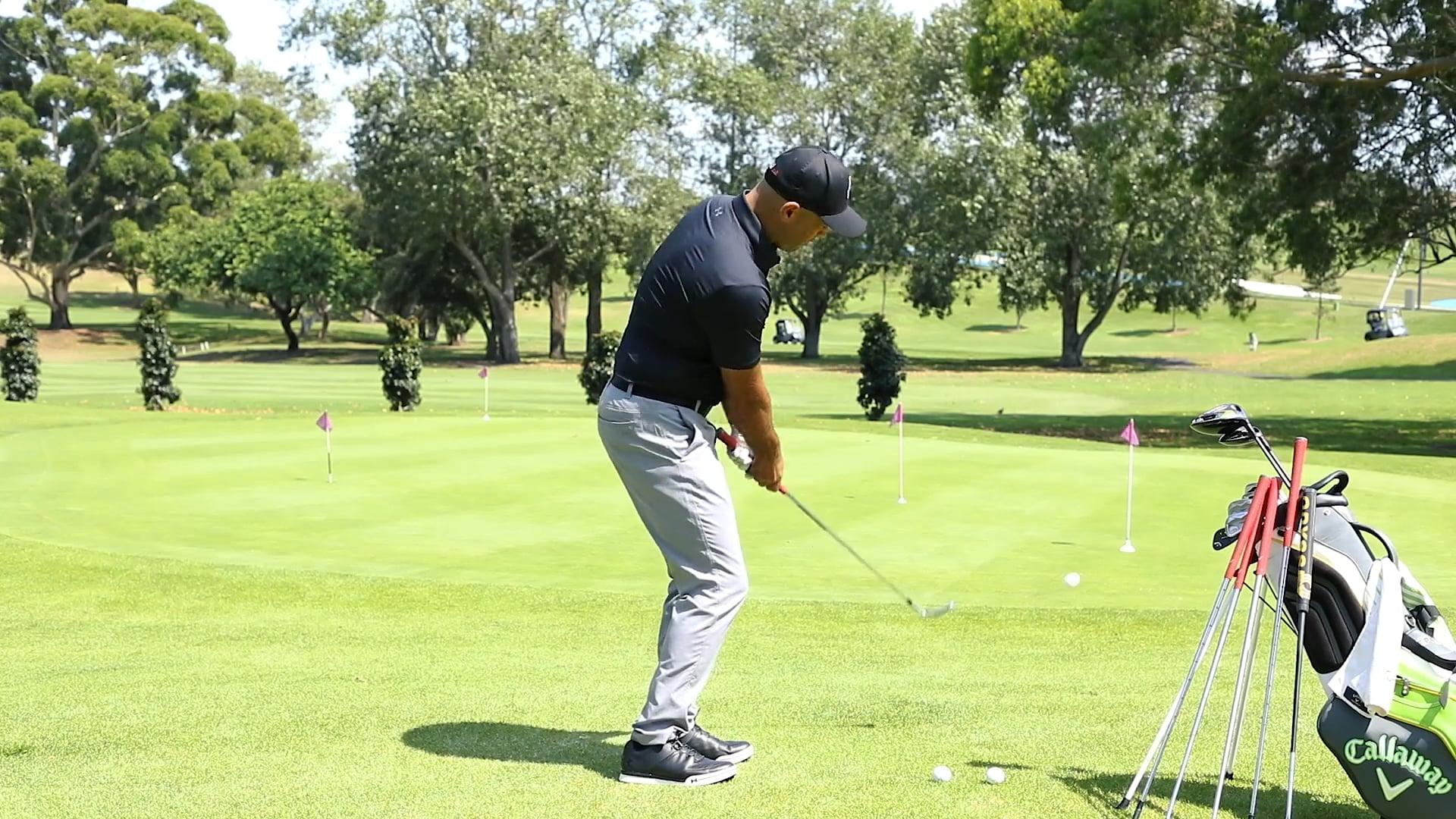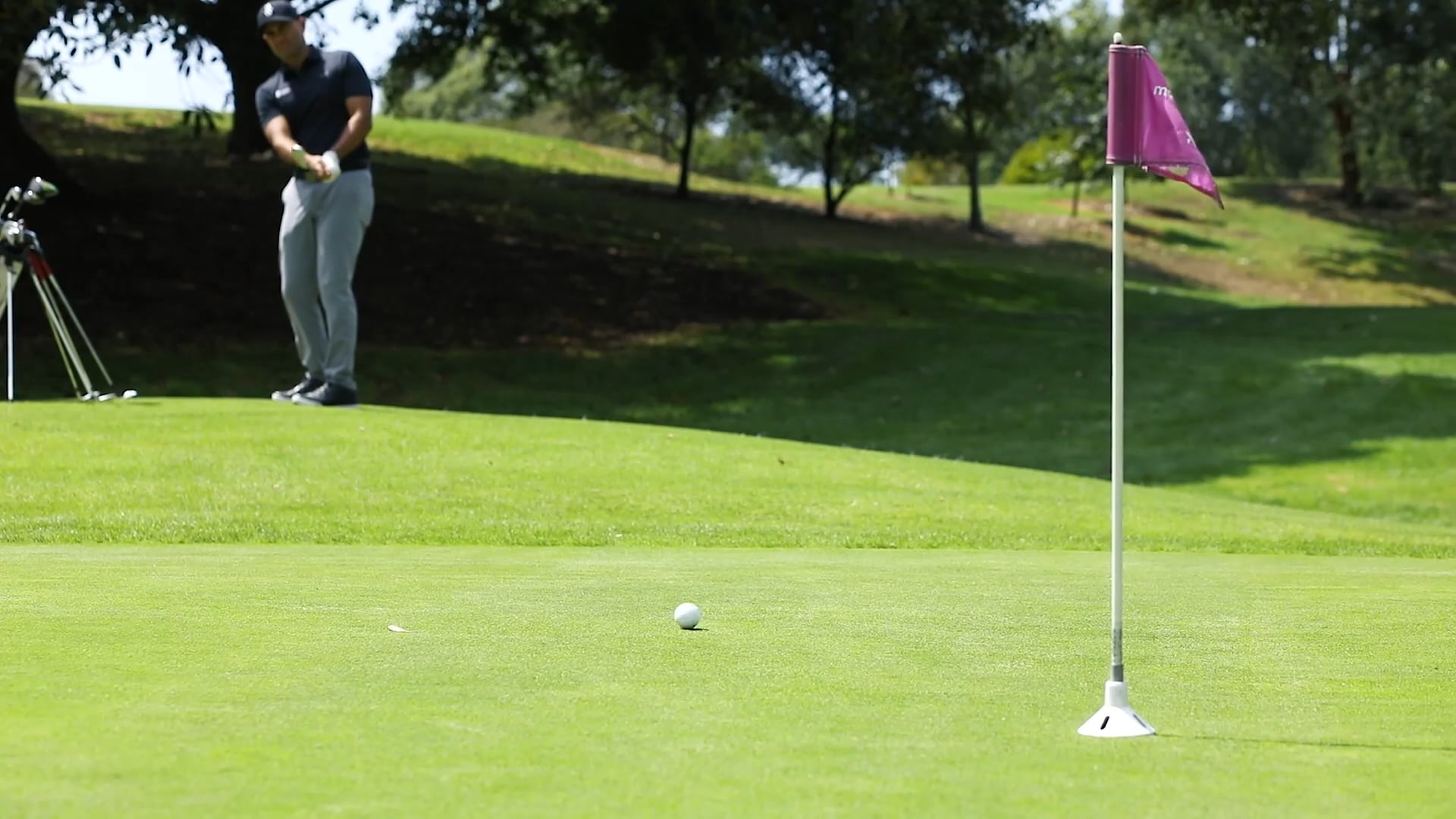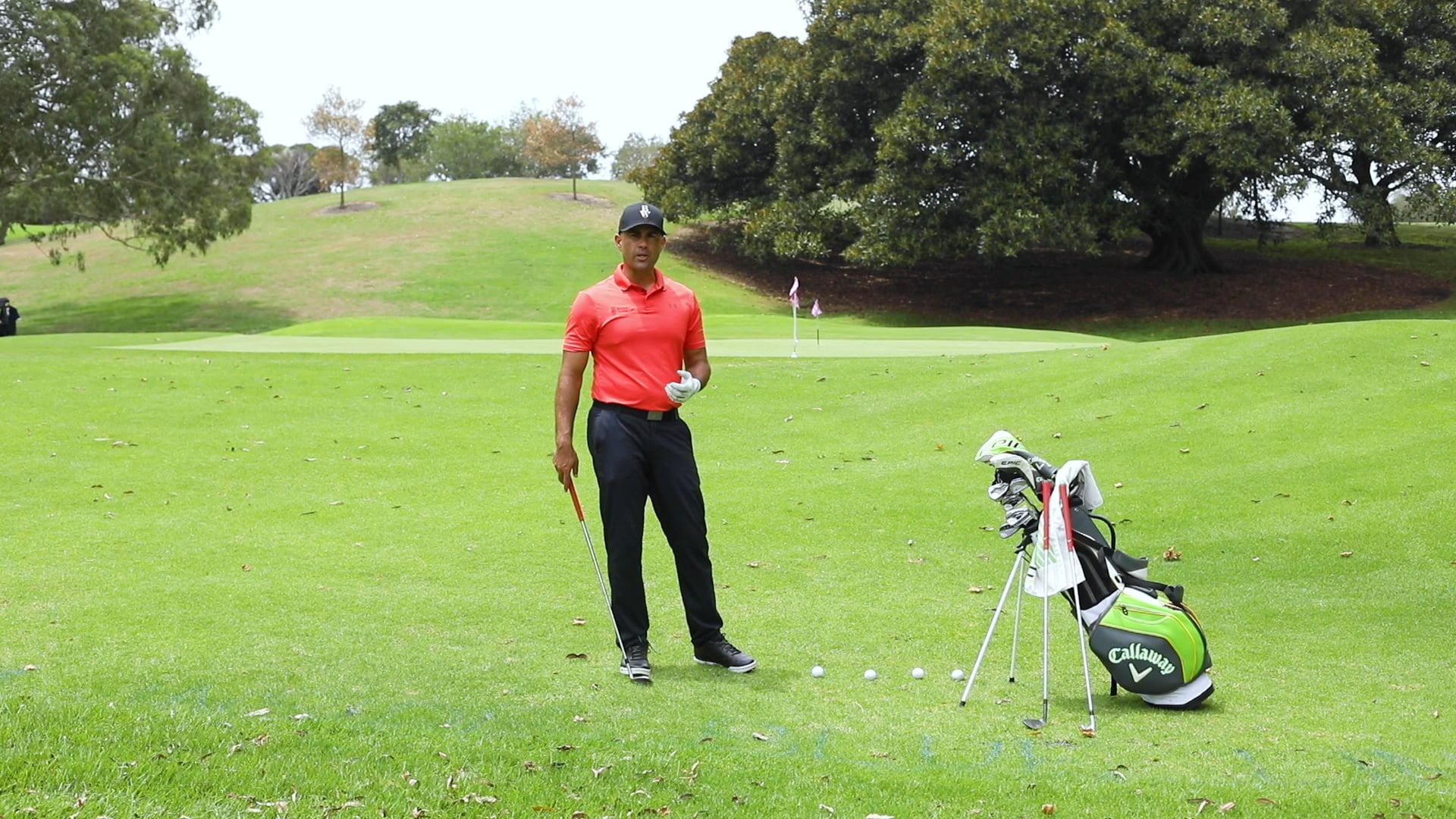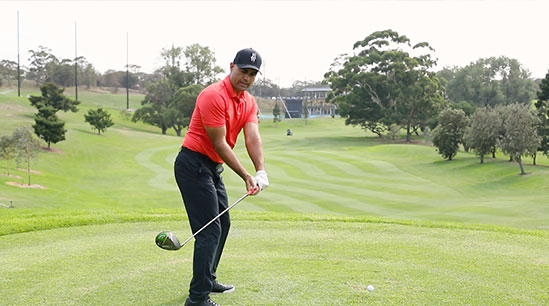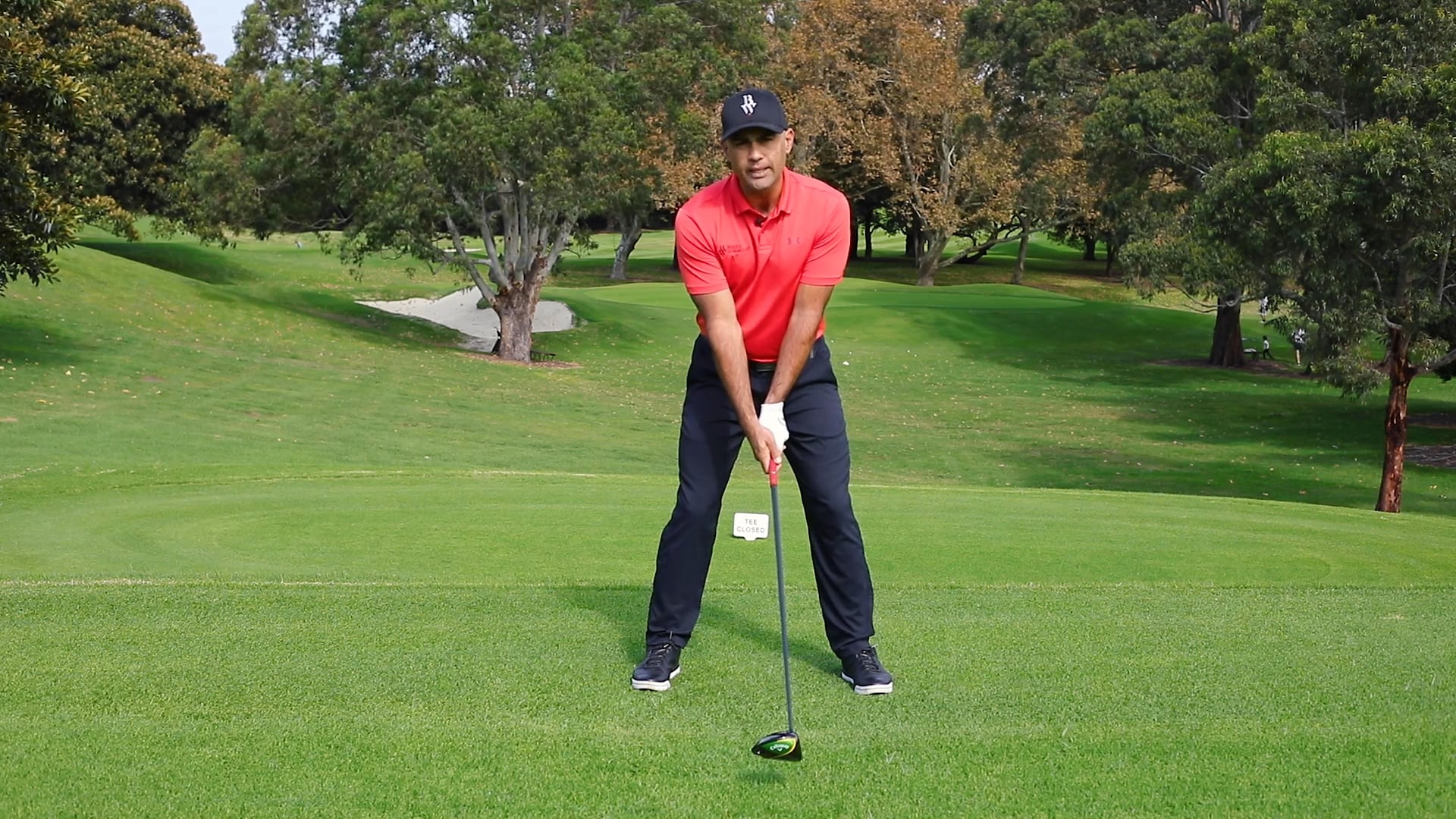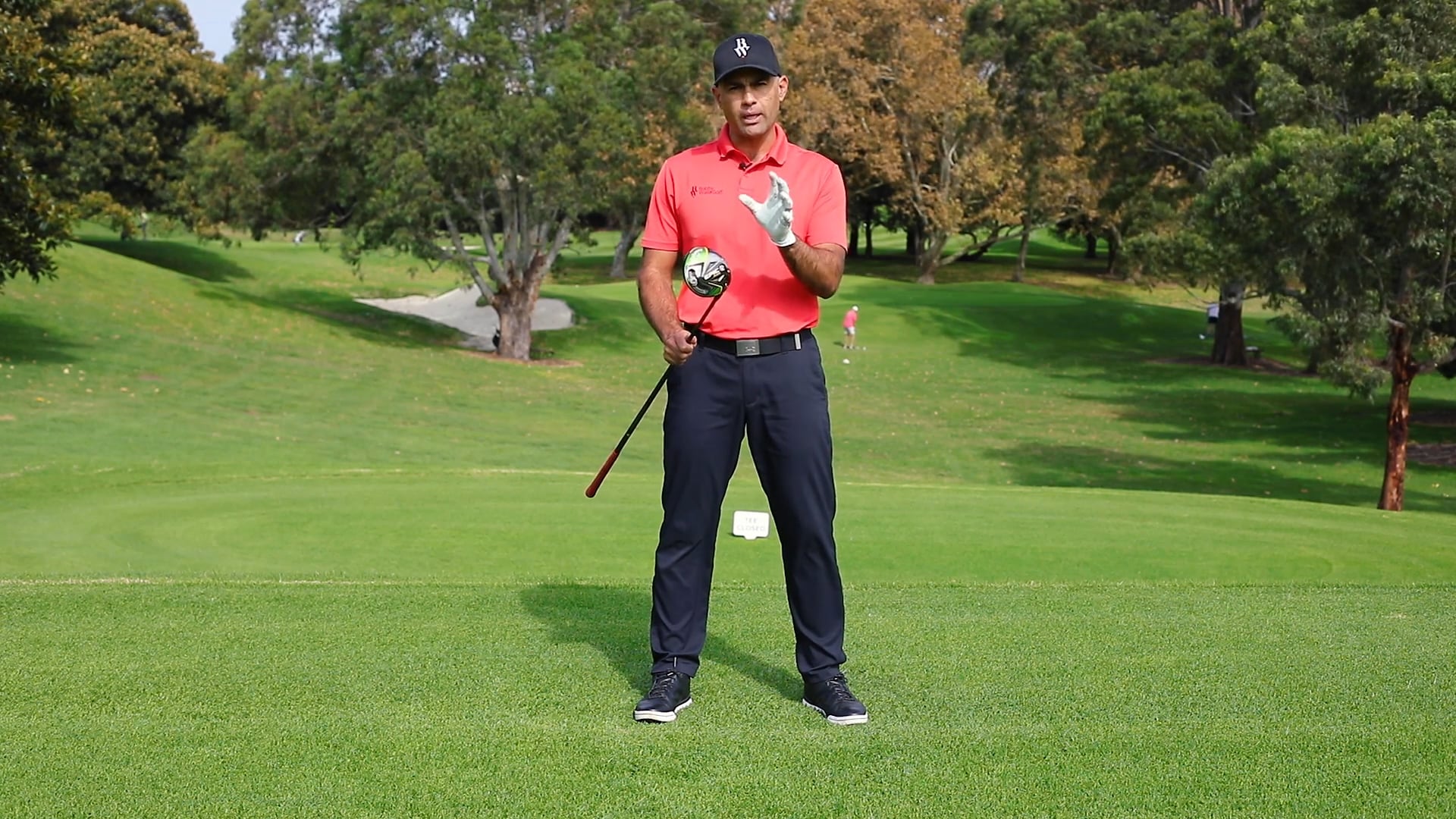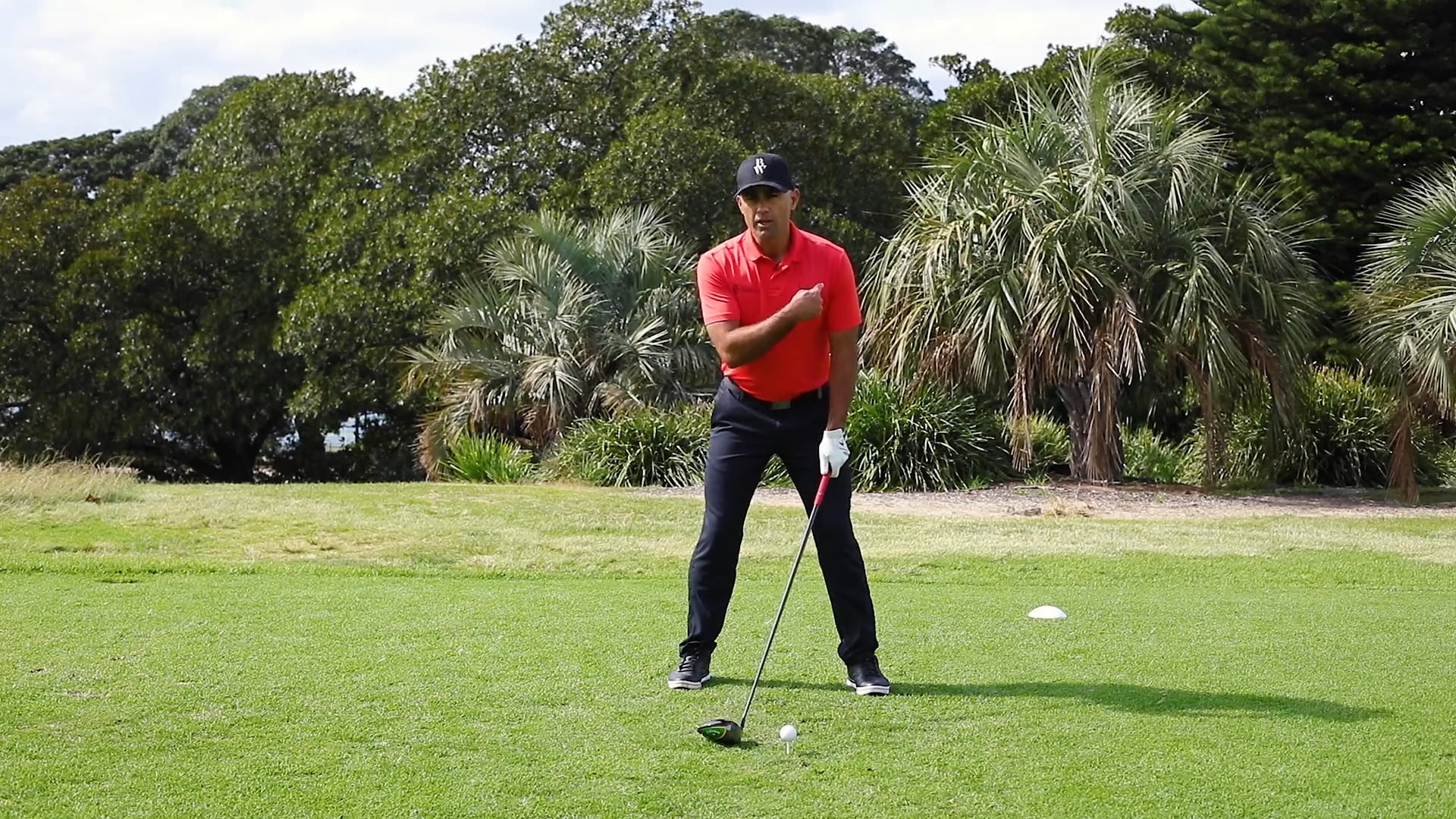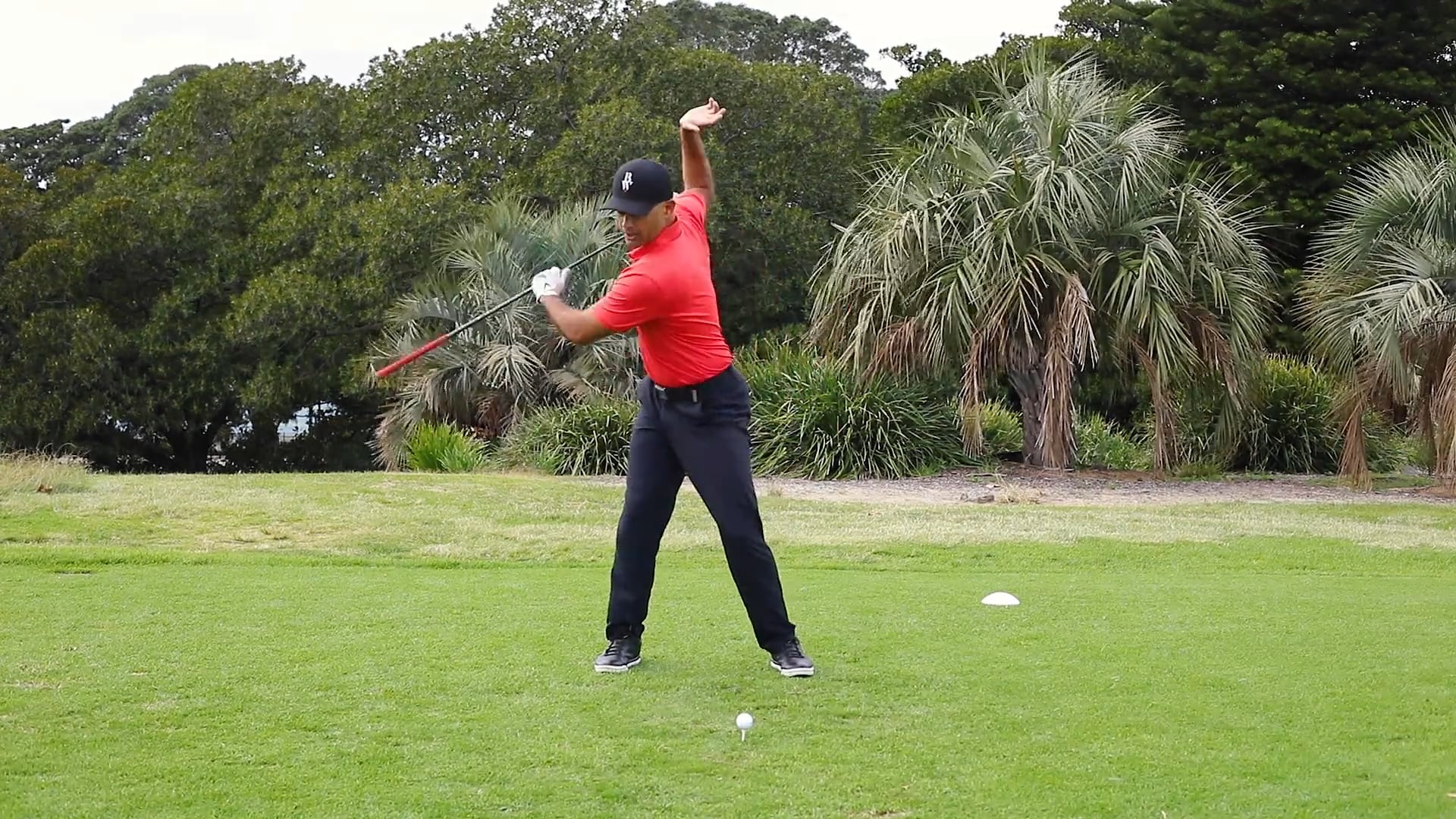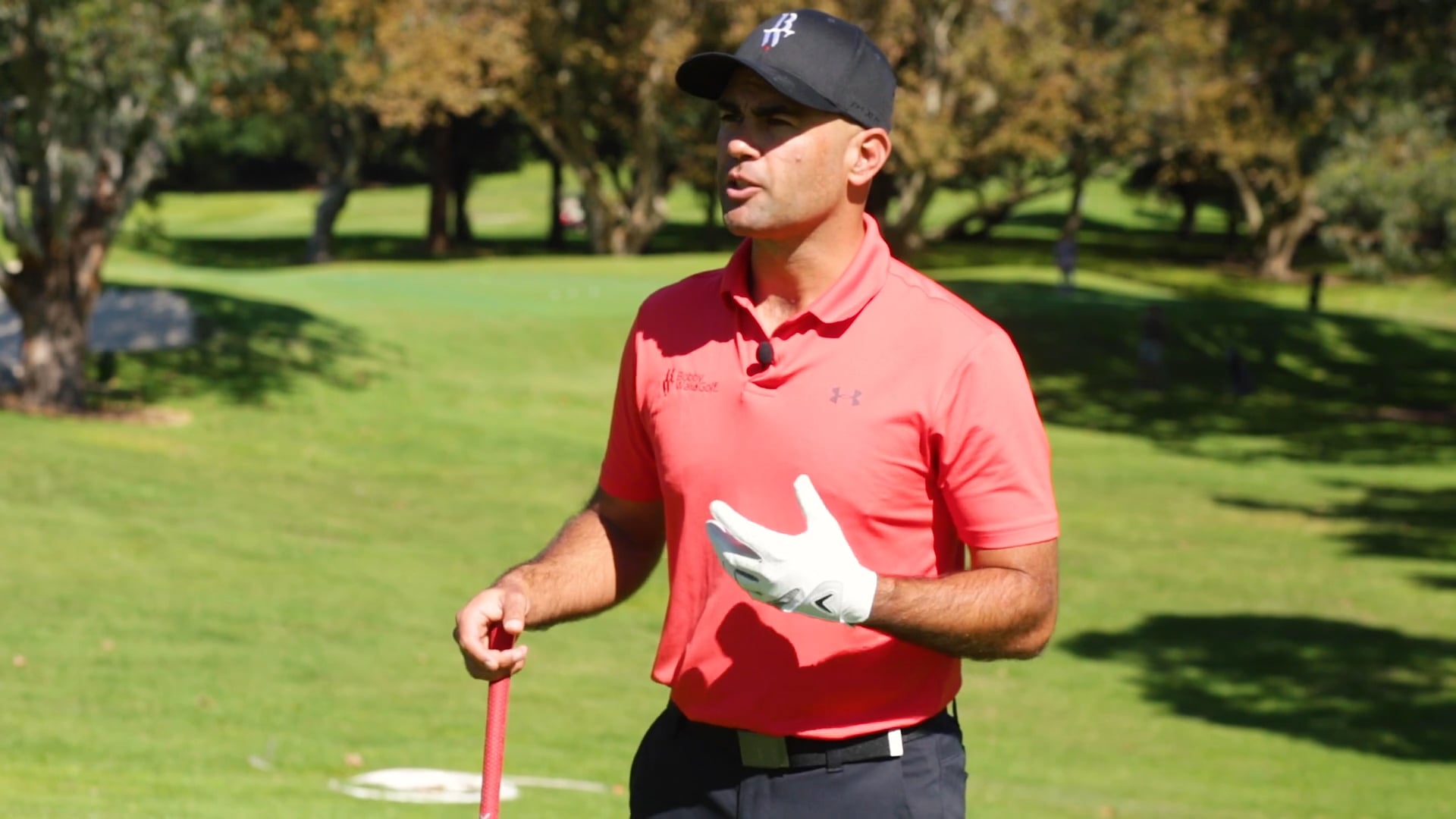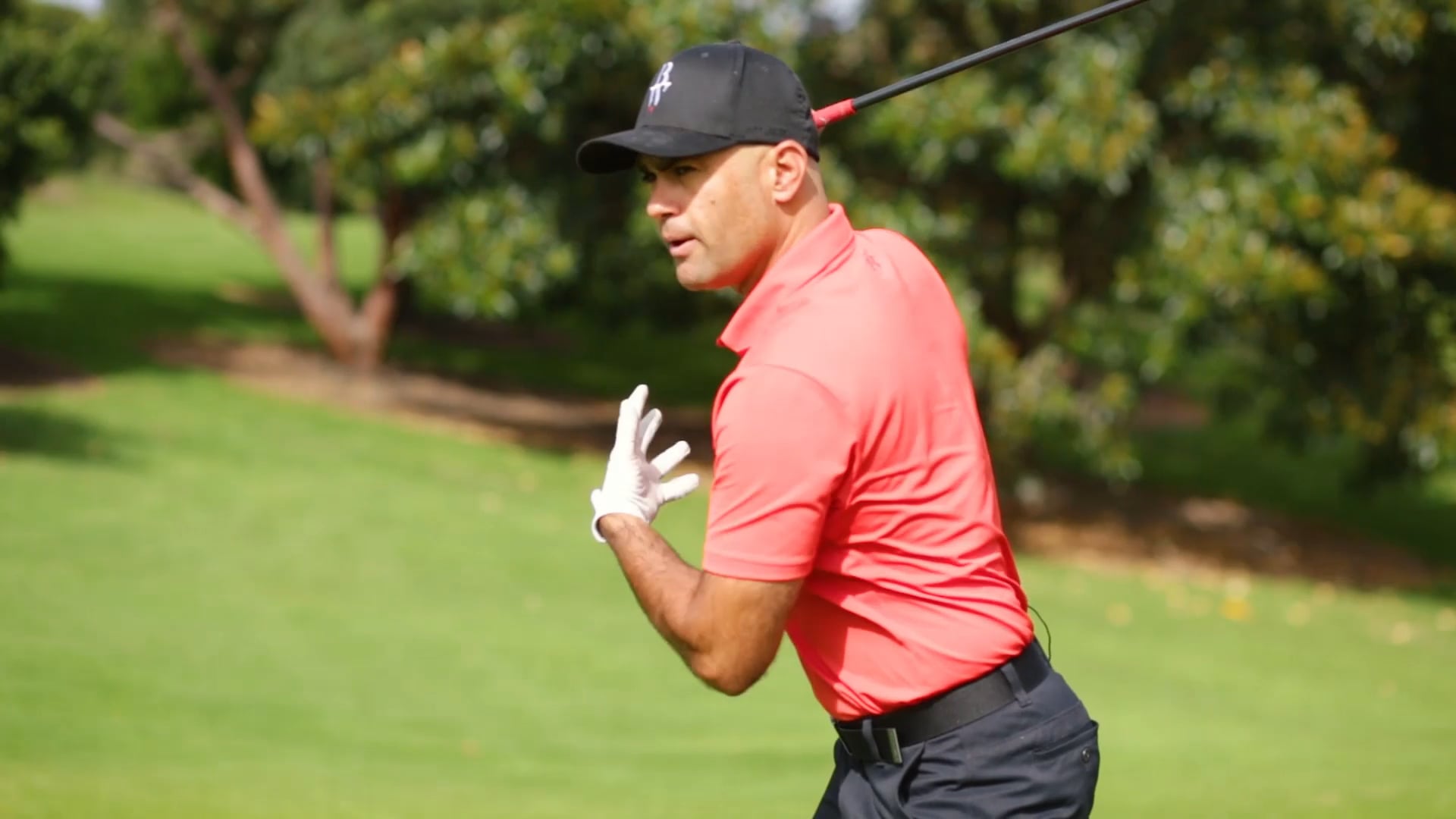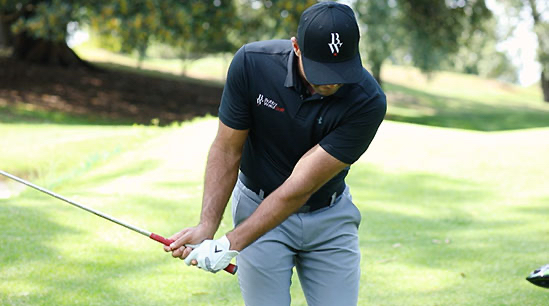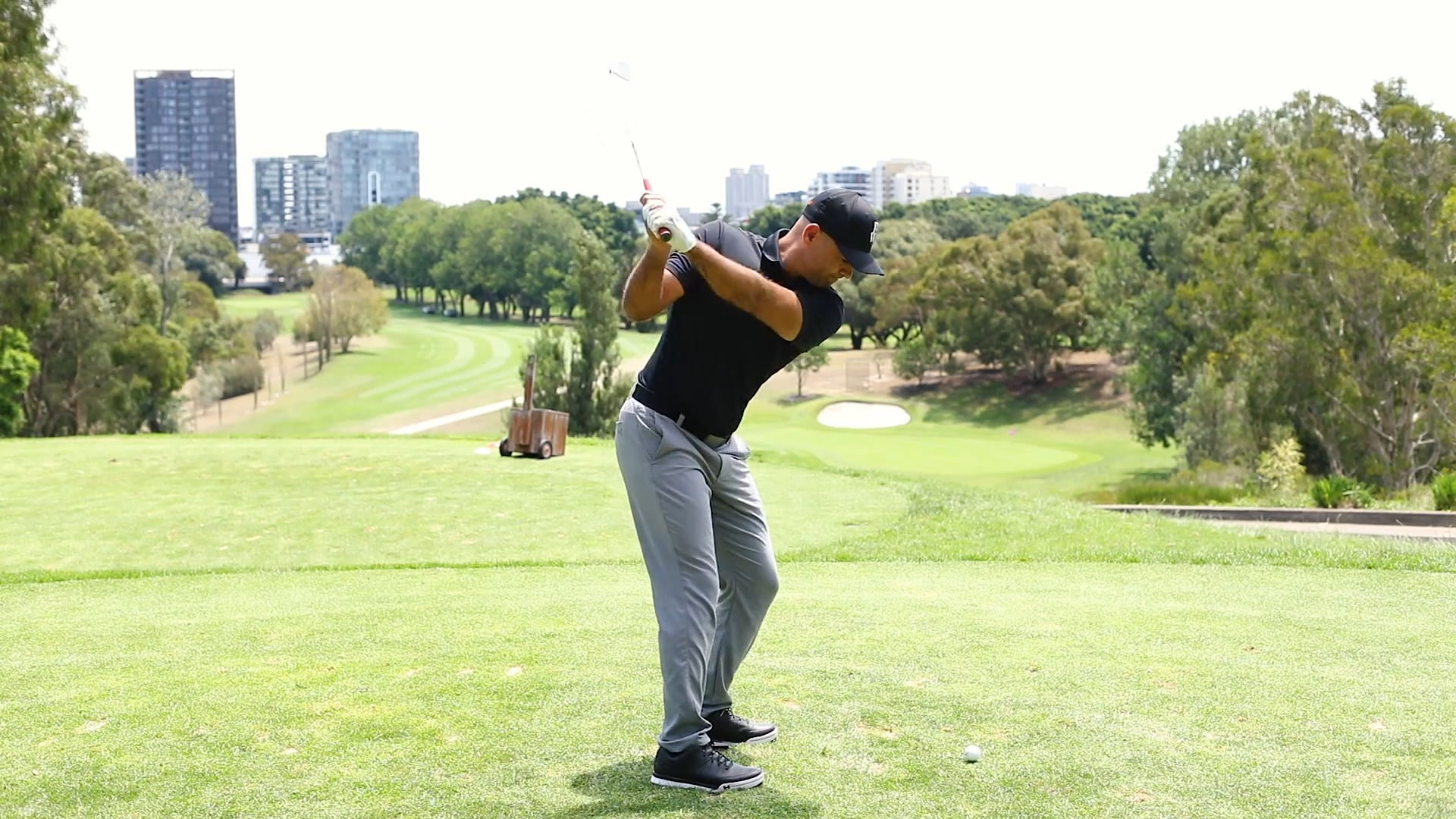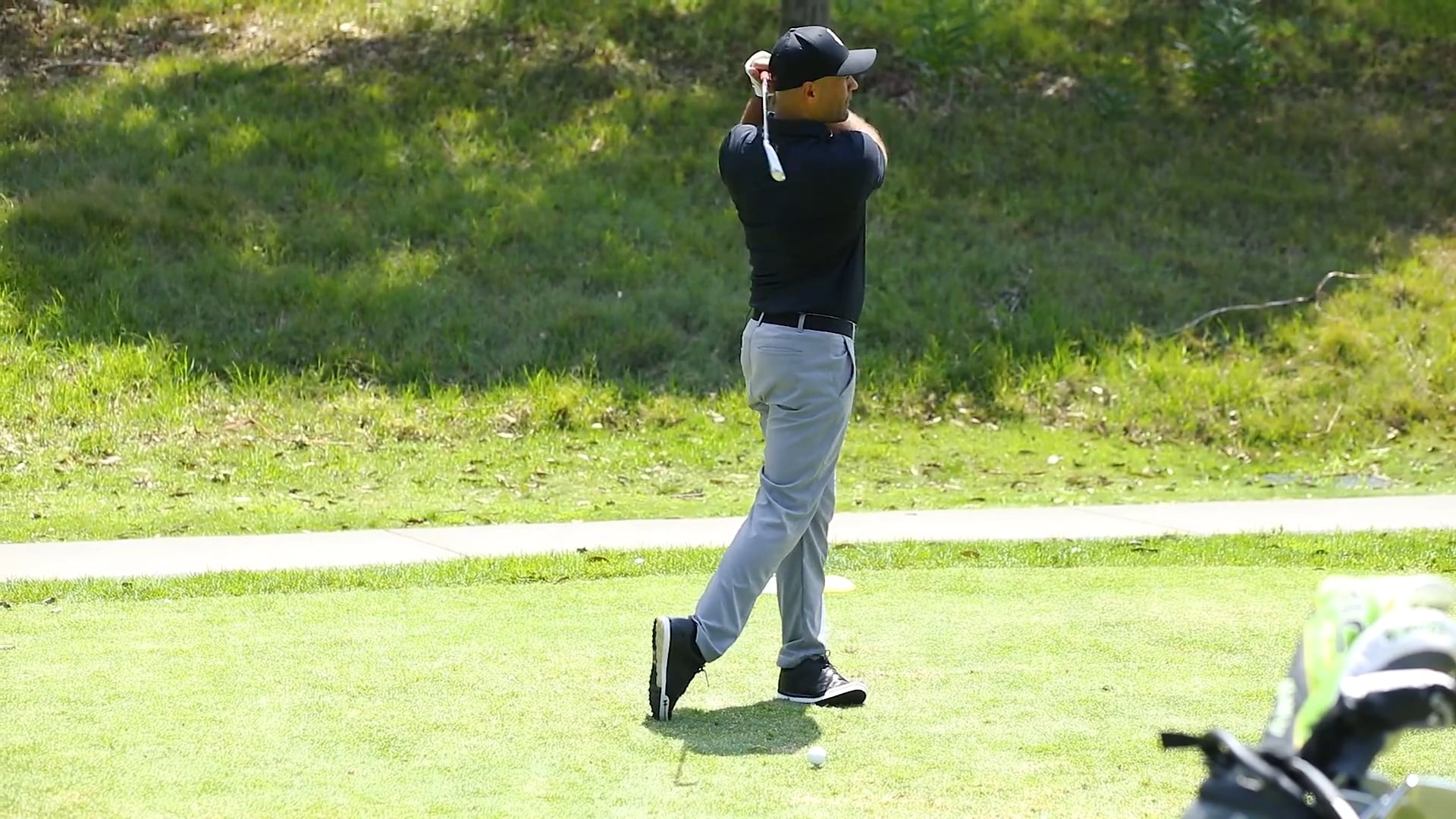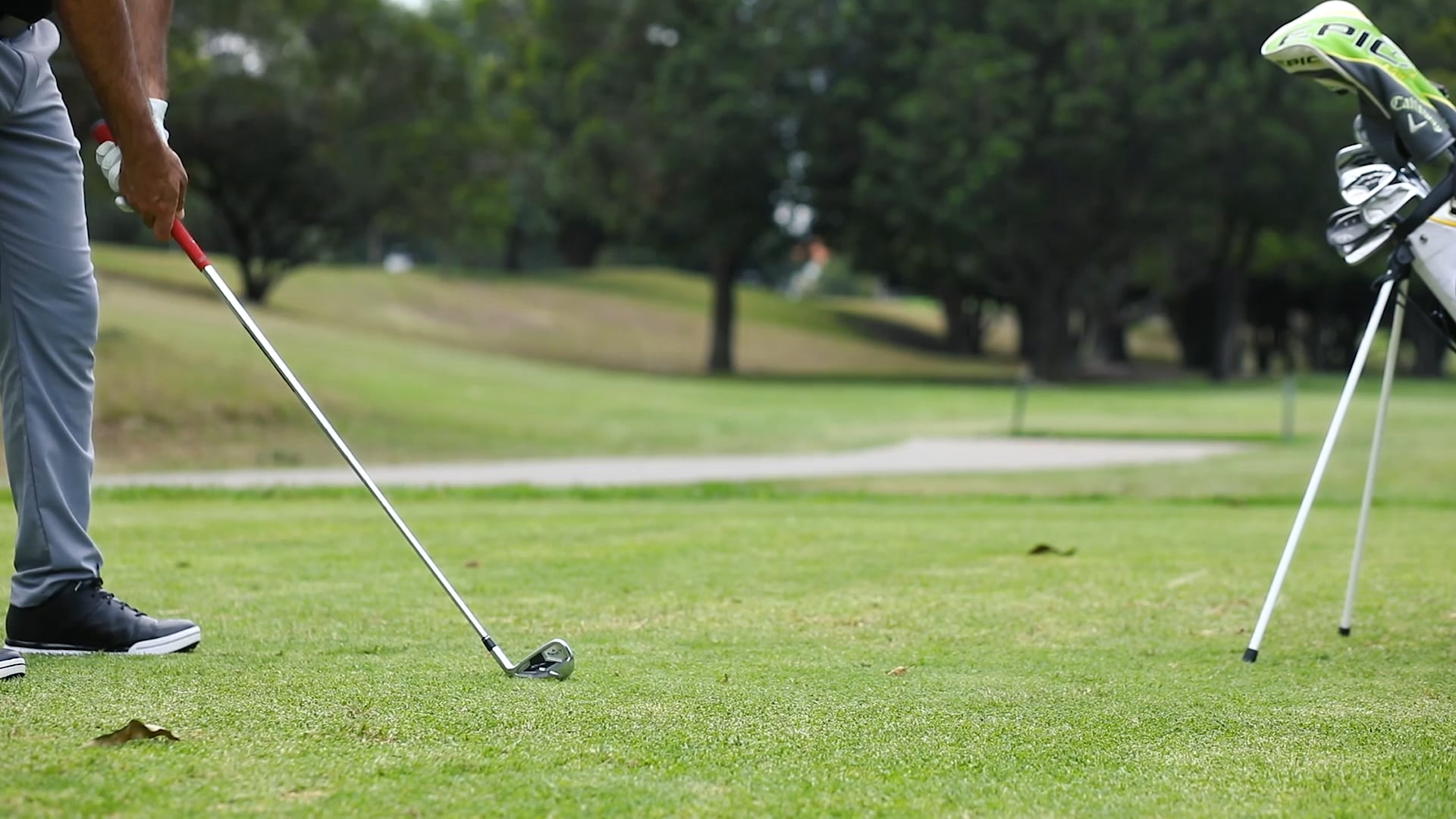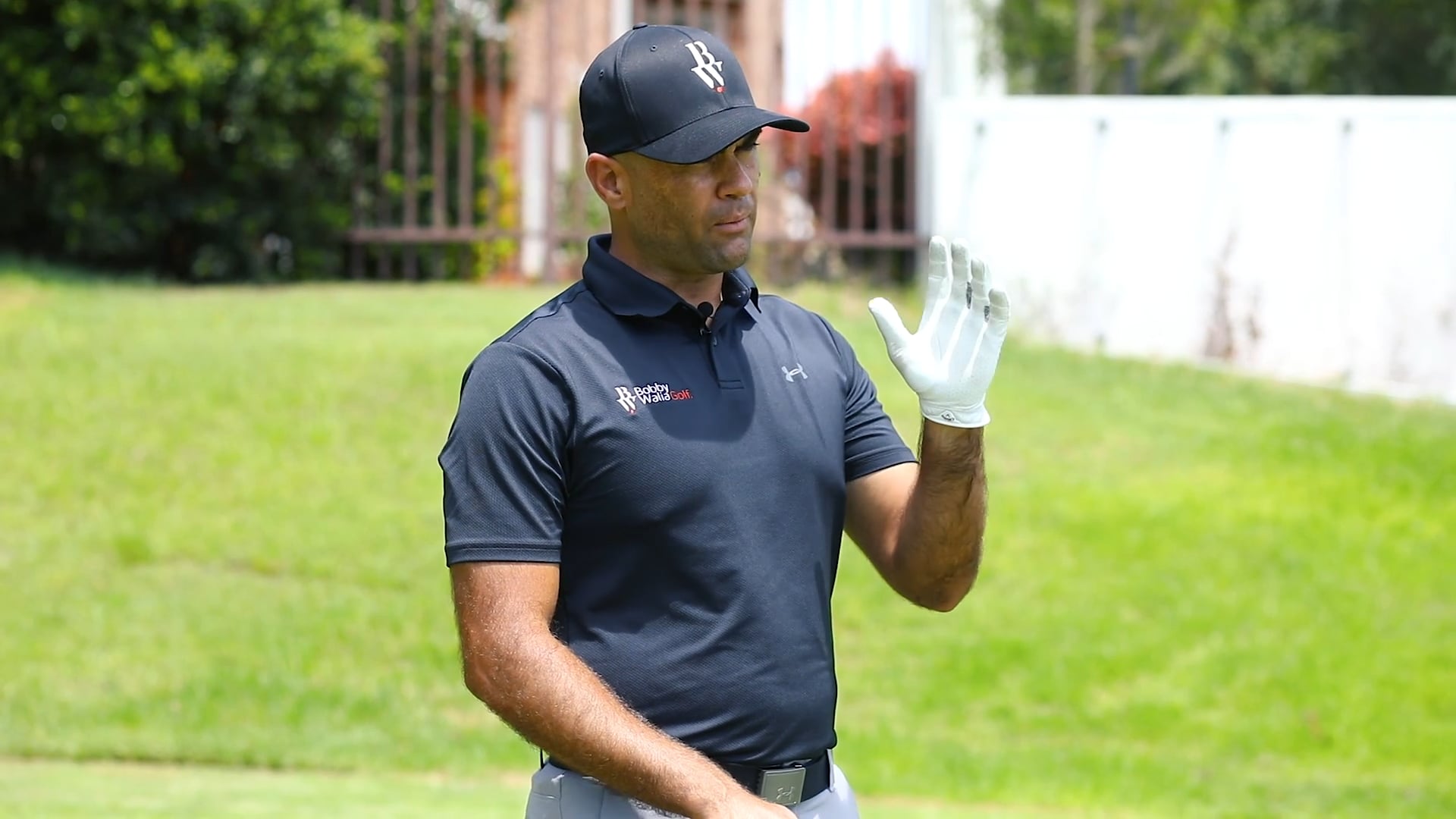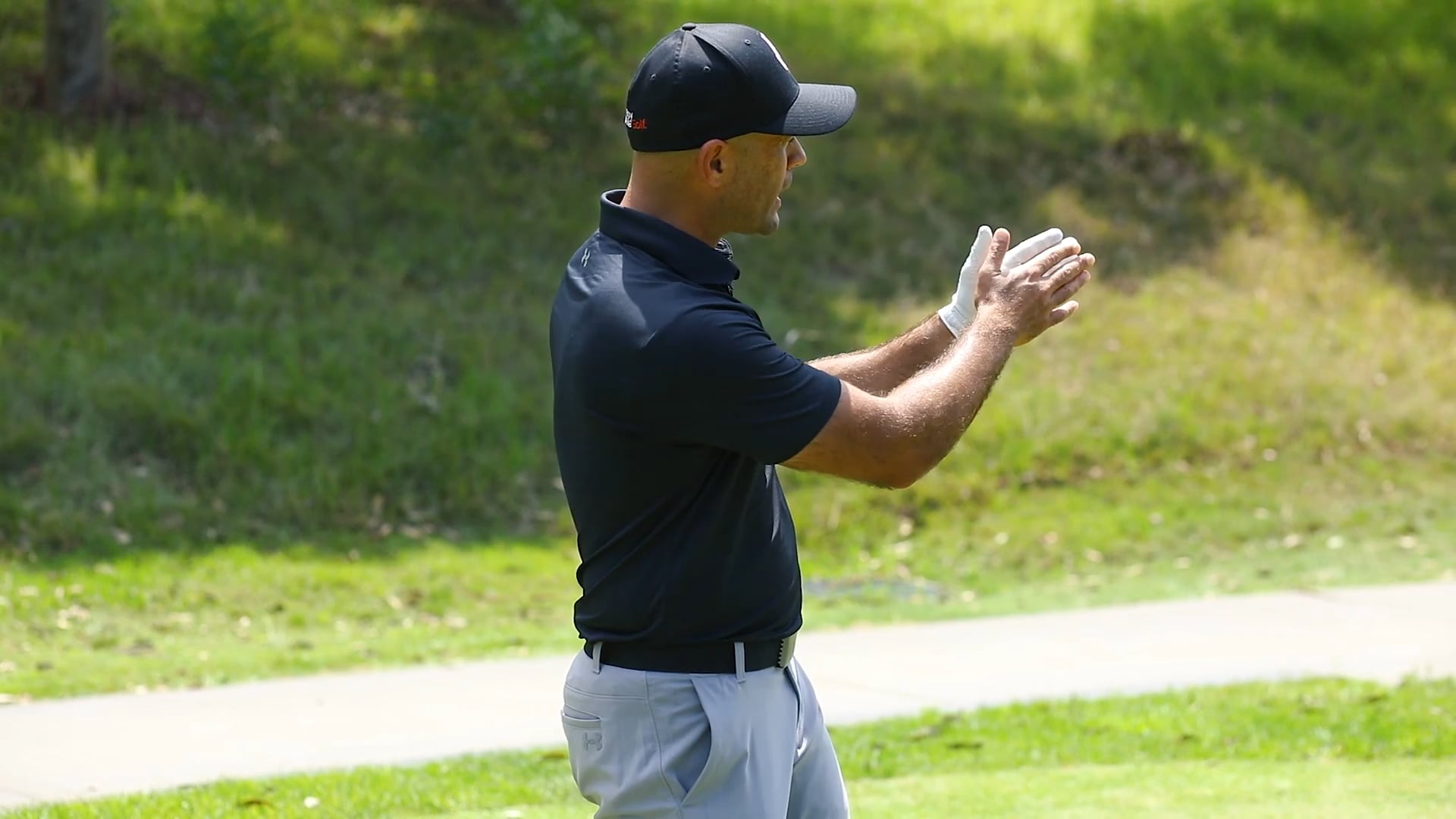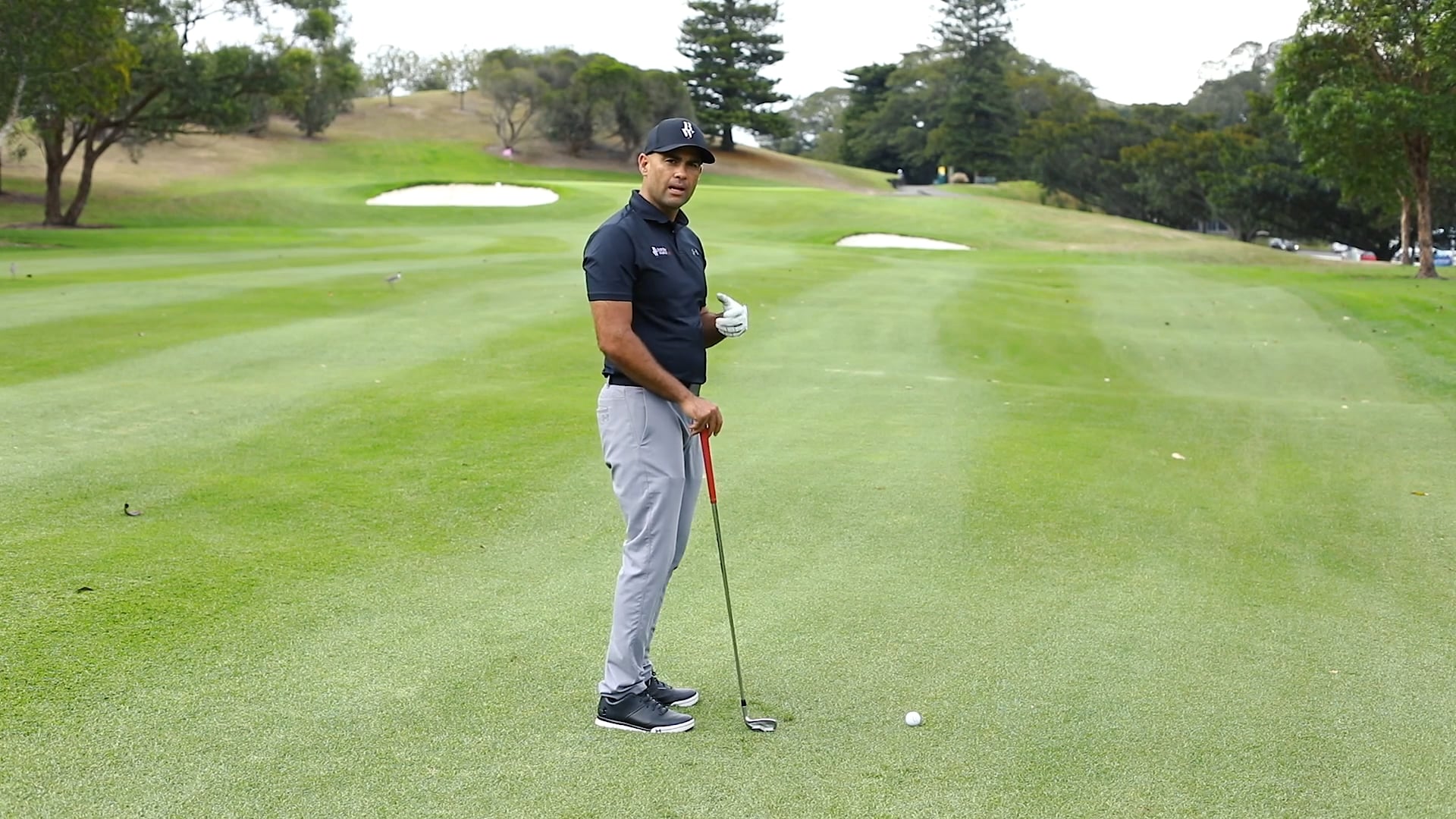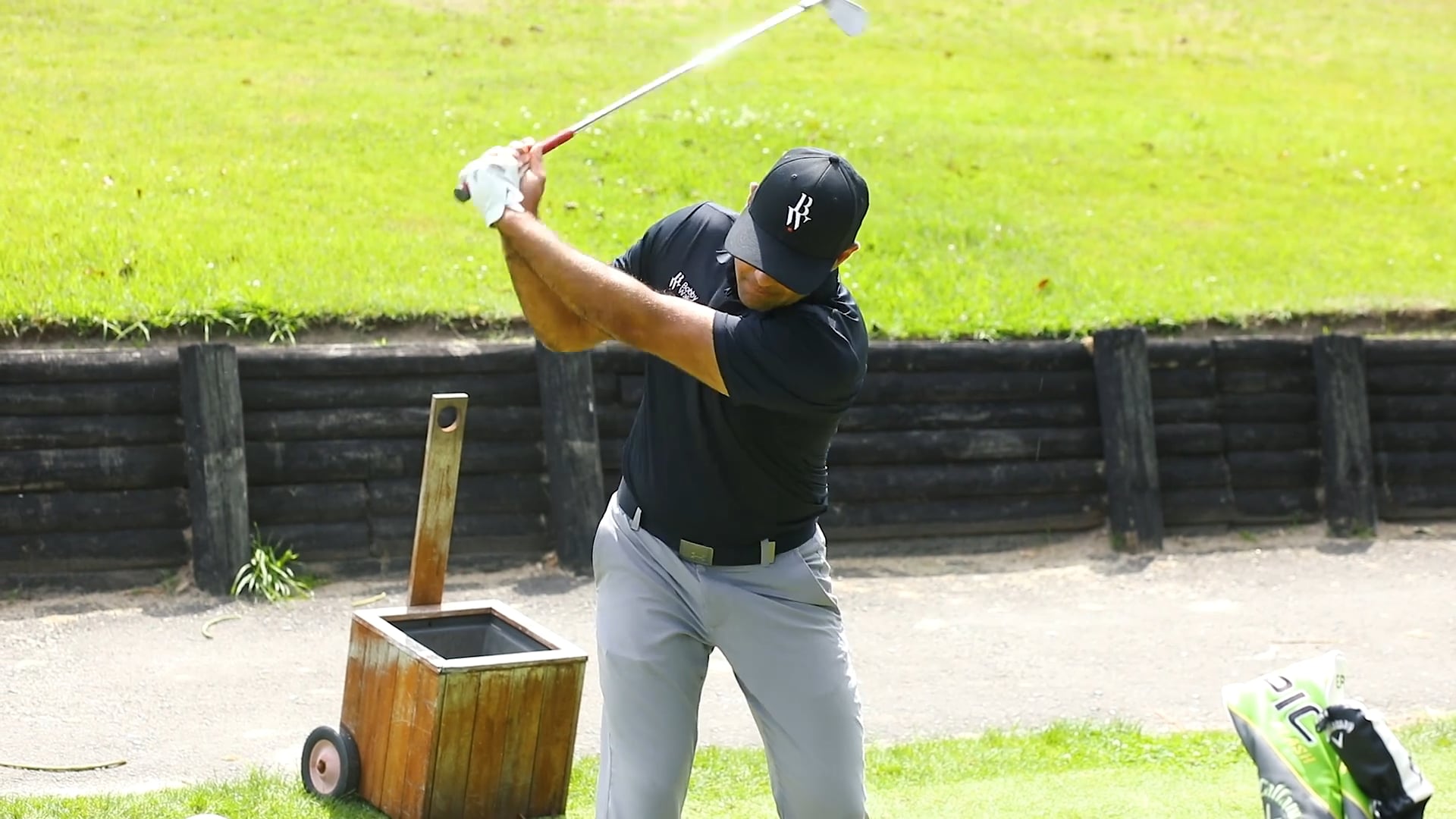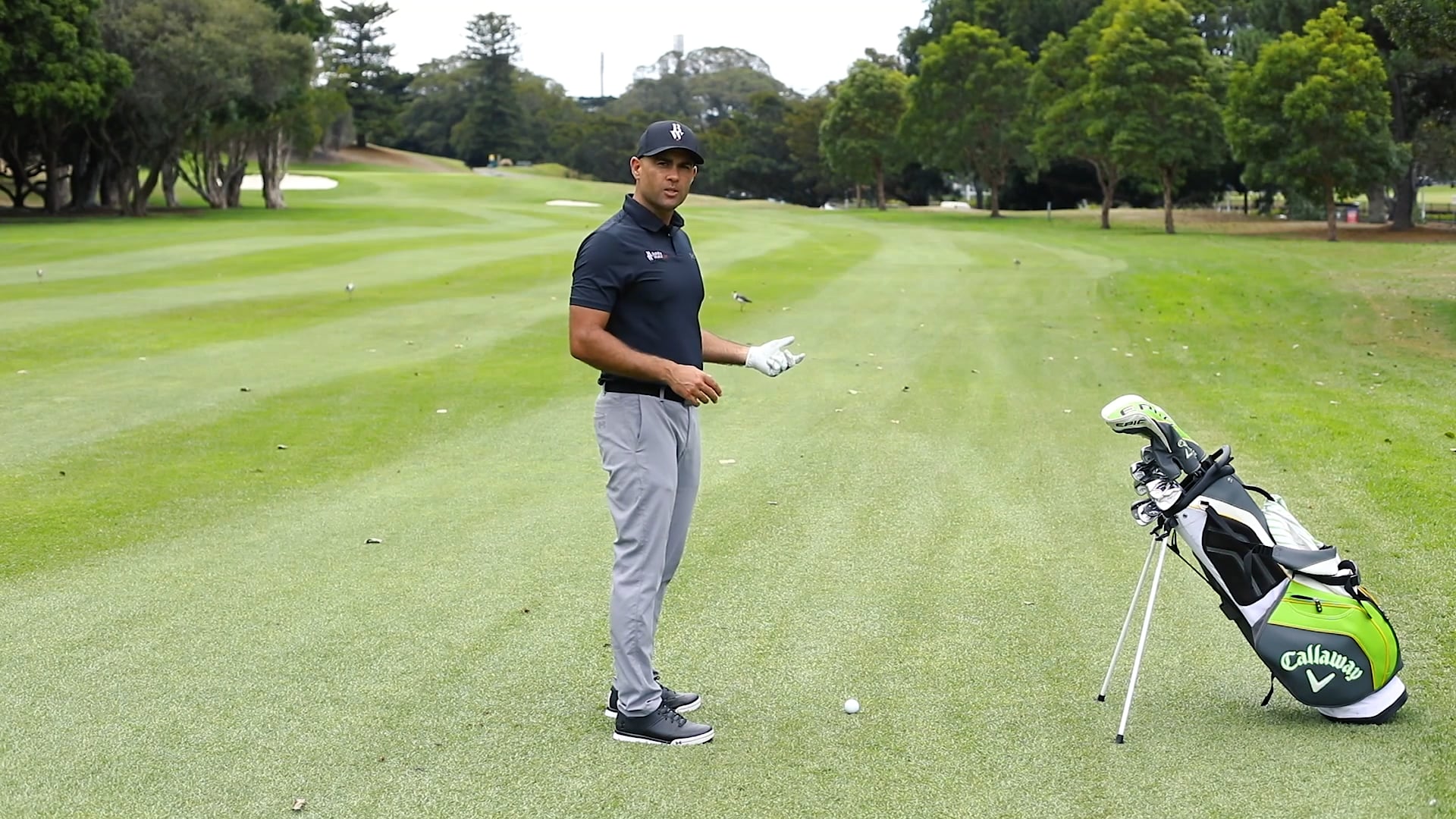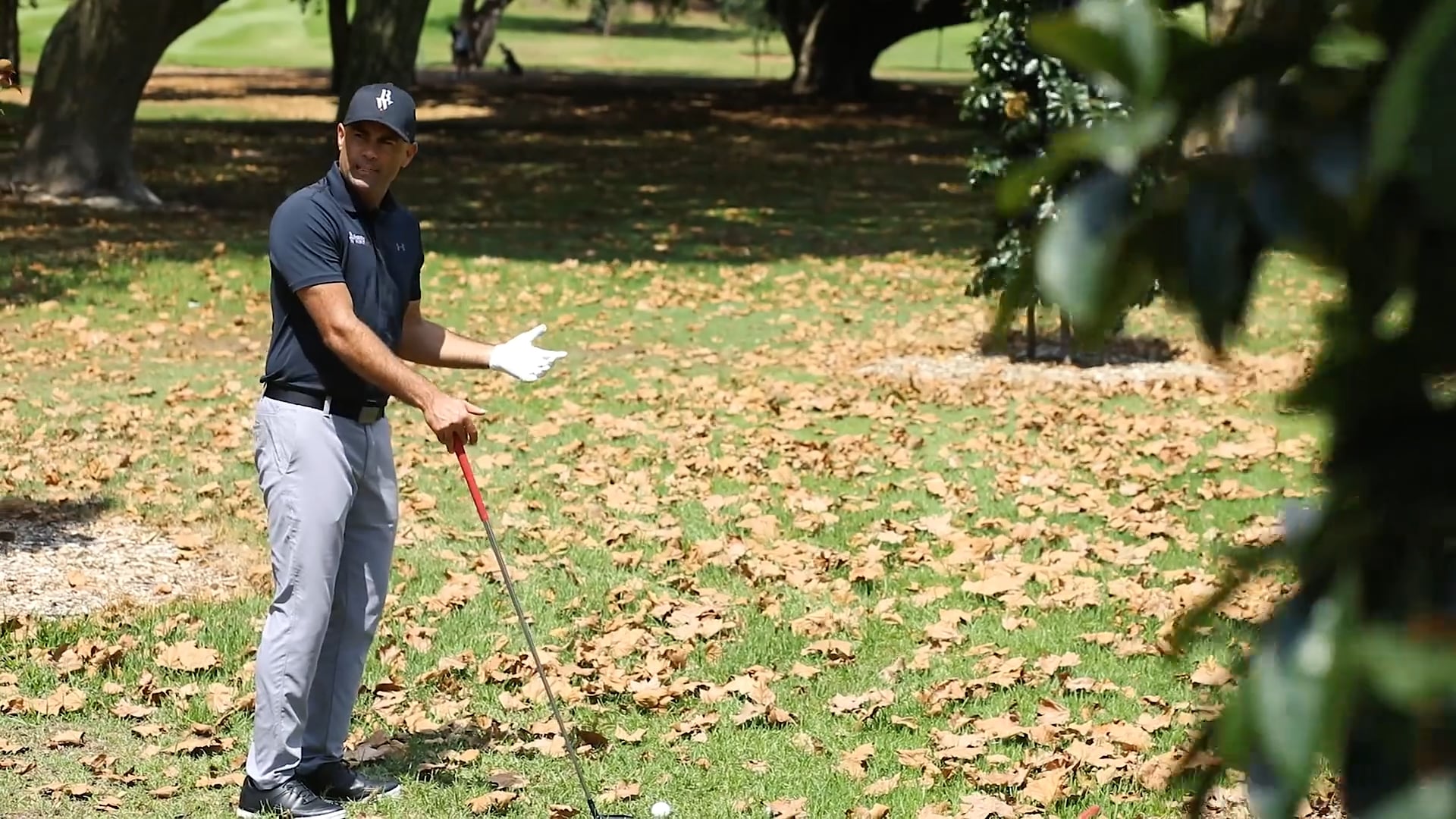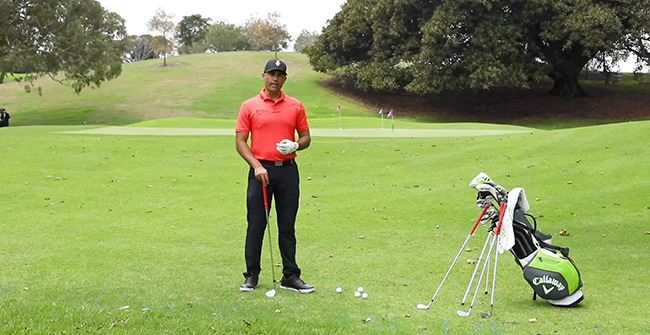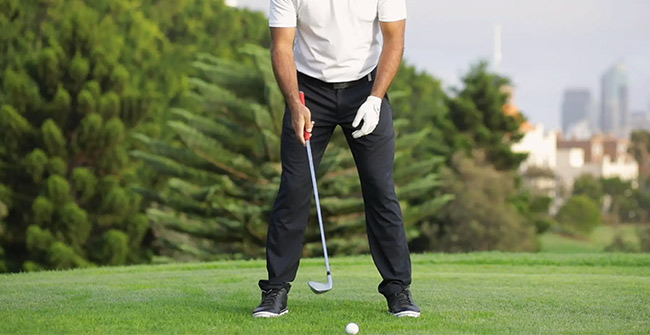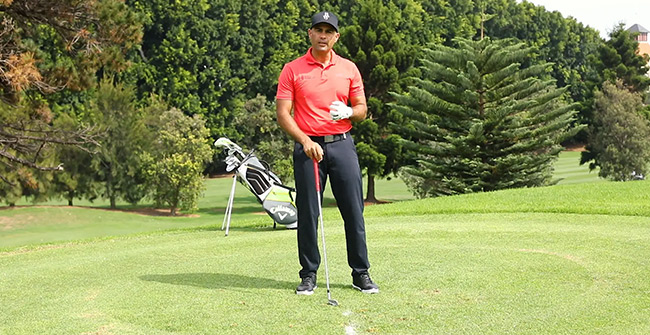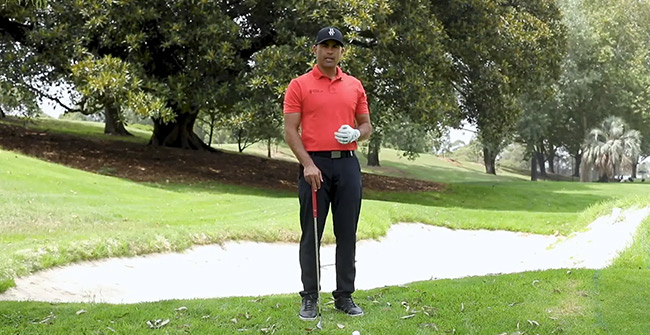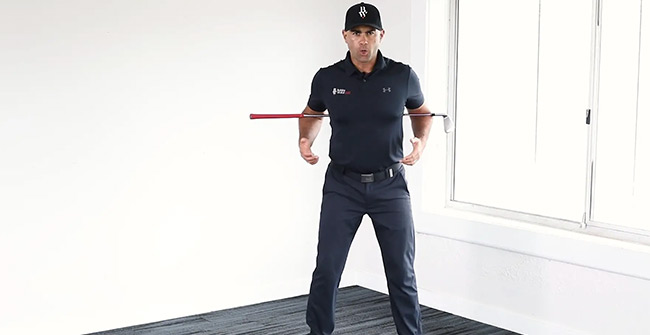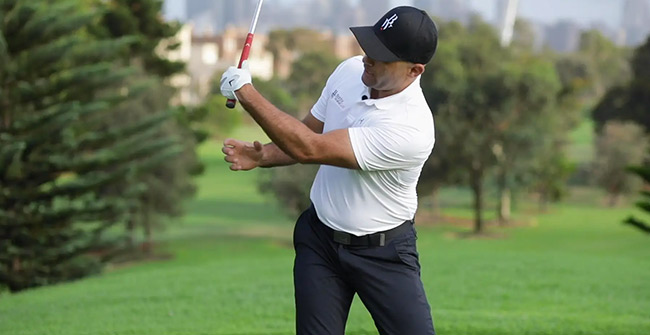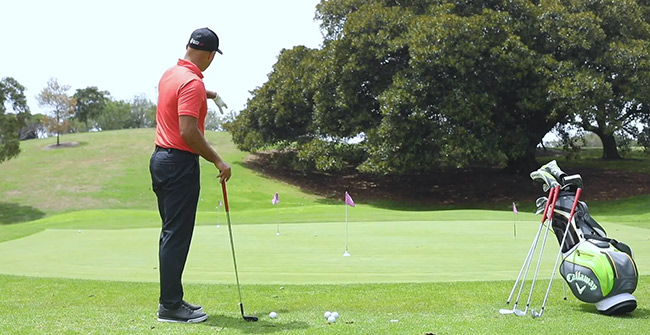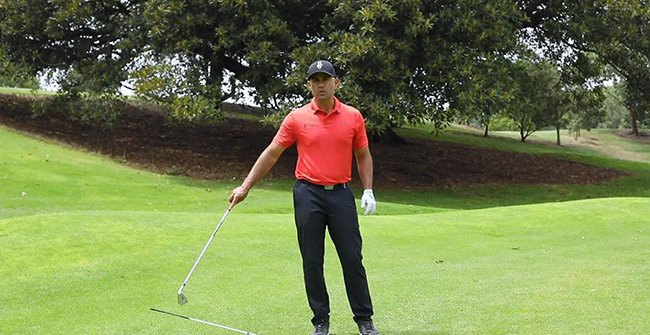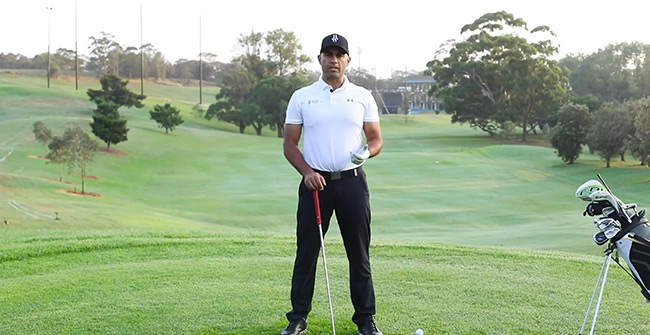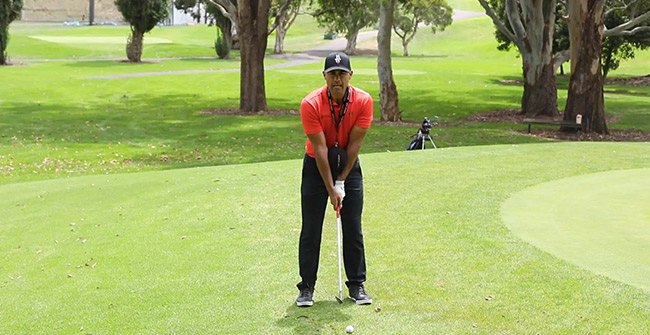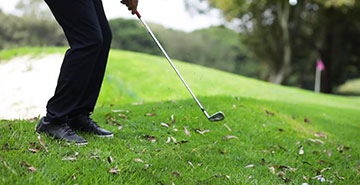117 classes found
Acceleration is key
One of the major contributors to bad pitch shots is speed generated only through the hands, not the rest of the body. Here I discuss the notion of using your arms and body to control pitch shot distance and spin with speed.
Feel the ground and use the ground
Using the ground is an integral part of creating a solid golf shot. Learn how to use the ground more effectively with this simple home drill.
Feeling comfortable whilst standing over the ball
Working on your posture is a really simple thing to do in the comfort of your home. It also helps your body gain more confidence on how it should be positioned over the ball.
Firm bunker shot
Bunkers normally have nice, soft sand in them. But what happens when that sand firms up, and what do we need to do differently? In this video, Bobby discusses how to play a shot out of firm bunkers.
Hitting a draw
Every golfers dream! A draw is a shot that shapes from right to left in the air. Clubface aims at target, body sets up a little right and club swings from in to out with rotating square clubface.
Hitting a fade
A shot that shapes left to right in the air. Clubface aims at target, feet and shoulders set up a little to the left. Swing along the line of your feet and shoulders with a square clubface.
Hitting a good drive
Setting up to a driver is a little different to other clubs in the bag. In this video Bobby talks you through how to set up to a driver and hit those good drives.
Hitting into the wind
What do we need to do differently when playing in to wind? Many people feel that when faced with wind into them, that they need to hit the ball harder. This normally causes excessive spin. Here we look at concepts that are needed to keep the spin off the golf ball and keep it low in the wind. Remember, “when it’s breezy, swing easy!”
Hitting off a tee
We don’t always have to hit off the ground in order to improve our iron shots. Hitting golf balls off a tee gives us good feedback as well as developing more rhythm and timing.
Hitting off the left heel
One of the main reasons for shanking the ball, is the weight moving too much towards our toes. Having a sensation of shifting more towards the left heel, helps create more space for the club to come though and allows the hips to rotate more freely.
Hitting the ball left handed
When faced with an awkward shot that you can't get to right handed, before taking a drop, consider using the other side of your club and see if you can get a left-handed swing on it. Practice this before you attempt it!
Hitting under trees
If we have a tree in front of us, what is the best way to get under it? When we find ourselves behind a tree and there is no option but to go under it, how do we change our set up and ball position to keep the ball low? Here we discuss a few simple concepts on how to keep the ball low.
Home drills
How not to slice
The positioning of our feet and upper body can be major contributors to us hitting a slice. Here are a few different feelings to help with your setup and swing path, helping you change the patterns that cause a slice.
Irons
Keep the club in front of the body
In the search for more distance, most people get very active with their hands and this gets the club fanning open really quickly. This is a great feel drill to help with both hand and club path and helps keep the club squarer for straighter drives.
Know your line
One of the main reasons many people will struggle in a bunker, is because they are unsure of how much sand to take when hitting their bunker shot. Hitting a good bunker shot can be as easy as knowing where behind the ball you need to hit. This video discusses a simple concept of knowing where your line is. Once you know where your line is, you can then hit that same line at different distances behind the golf ball to start controlling the distance the ball goes.
One handed shot
When we cannot get a good stance or good setup or any real options, a very handy shot is the one handed shot! Stand on the other side of the golf ball, turn your back towards the target and get the right wrist moving back and through towards the flag.
Pitch shots
Pivot with towel
Tucking a towel between your armpits and across your chest is a great way to feel a natural pivot through the ball, with still allowing your wrists to hinge freely.
Preset hinge drill
Hinging the golf club is such an important part of creating leverage and power. We often hinge the club incorrectly and this drill helps us continue our swing after a correct pre-set hinge.
Putting shots
Resistance band training
Most golfers struggle with a sway/lateral movement in their swings. Having a bit of theraband or resistance tubing is a great way to switch the right muscles on and help you develop the right support, rotation and coil with your backswing.
Right foot on the toe drill
A great drill for your driver swing, to prevent you over-rotating your hips. Does your right leg lock up on the way back due to excessive rotation? Follow these steps to allow you to still move freely, but also maintain resistance for power.
Sand on the club face bunker drill
Placing sand on your golf club gives you a really good sensation on how to use the natural loft of the golf club in the bunker. This drill also helps you feel a more natural pivot with your bunker shots.
Set up to outside golf ball, hit the inside one
Swing path is normally a big factor when hitting the dreaded shank. One of the reasons we tend to hit the ball off the hosel is because of a fear of hitting out to the right. We then force the club inside the line, forcing us to come over the top or outside the line, pushing the hosel towards the ball. This drill helps create a better path going back aiding an easier path back to the golf ball.
Slow, slow, slow tempo drill
Our intensity normally ramps up when we have the driver in our hands, in an attempt to smash the ball! This is a great drill for tempo as well as feeling how all of the components of the driver swing work.
Specialty shots
Split grip drill
Most people tend to get very 'wristy' around the greens, and use their hands more than the natural pivot of their body. This is a great drill to keep your hands a little more quiet with your pitch shots.
Switch the pattern, swing right
Most people that slice the ball, struggle to commit to changing their swing path. Here is a drill to help you gain more confidence in swinging the direction that you are most scared of going!
Tees either side of the golf ball
A shank is always hit of the hosel of the golf club, this means when the club gets to the ball it is travelling to the outside of the ball. This is a great drill to give you a sensation of the club hitting the ball a little closer to the toe.
The driver
The grip
The hook
The shank
The slice
Toe up to toe up drill
Understanding how the club works in the golf swing is how we create more consistency with ball striking. This is a great drill that helps with creating leverage and a release in the golf swing. Knowing some terminology of the club ('sweet spot', 'heel and toe') will help you develop a feeling of creating the right sort of movement of the club, which will lead to better shots.
Trust swinging to the left
People that hook the ball have a fear of swinging to the left, as that is where they think the ball will go. Here is a drill to help you overcome that fear of the ball shaping too aggressively from right to left.
Understanding the club face when hitting a slice
A slice can only occur if the clubface is open, no exceptions! We can stop the club being open by incorporating a feeling that helps the club square up on the way back, helping it square up on the follow through.
Understanding the club face when hooking the golf ball
Hooks are a result of a shut clubface swinging too aggressively from in to out. Here you will learn how to change your body’s position to change the path of your swing, allowing you to hit straighter shots.
Understanding the pivot and movement of the body
Repetitive movements of our rotating backswing and rotating follow through are a great way to get our body more confident with how it should perform and move on the course.
Use the ground to come through
Similar to the feeling the ground drill, this is a higher intensity drill on how to drive into the ground to creative a really strong, explosive follow through.
Use what’s infront of you
If you are faced with anything other than a flat lie infront of you as well as varying amounts of green, what type of pitch shot do you play? In this video, you will learn how to make the correct decision, as well as what to consider when playing different length pitch shots.
Towel behind the ball
In order to create a crisper a hit with our irons, we need to be able to control our angle of attack. Placing a towel just behind the ball is a great drill to help us pure those iron shots.
Using different parts of the legs as reference points
Controlling distance with chip shots is a major issue for most people, as there is never really a reference point on how to hit a certain distance. We can use various parts of our legs to control our chip shot distances. In this video you will learn exactly how to do that.
Using the bottom of the club in a bunker
Learn one of Bobby's favourite drills to demonstrate how to use the bounce of the club in a bunker. Place some sand on a club-fitting lie board, place the ball on that sand and try to hit the lie board with the bottom of the club. You will find the ball floats out on the sand every time!
Using your chest for acceleration
Momentum is not just created through the arms and wrists. The chest is a major contributor to rotation and acceleration. Learn how to bring the chest into play and develop more control through the swing.
Weight distribution and tilt
Creating a strong supportive base with your legs and a natural tilt behind the ball are a great way to create a strong golf swing.
Around the world
Shorter putts with varying slope can often be nerve wracking. This is a great game/drill that puts pressure on you to make a number of putts in a row or accumalated and helps with gaining more confidence with that second putt.
Chipping area pre-shot routine
Before hitting a chip shot, we need to be 100% committed to the shot we are about to play. Don't regret the outcome of your shot, follow a strict pre-shot routine with your chip shots. Here Bobby discusses a few factors for you to consider with with your chipping routine.
Distance control
One of the main reasons for three putting, is misjudging the first longer putt. By placing a few tees behind the hole in a semi-circle, we can create a secondary target which will in turn-help with judging the distance. This a great drill for longer putt distance control.
Draw back
We all know the term, "never up, never in" This is a great game/drill that really puts pressure on you with that first putt. Don’t get it to the hole, take it back a putter length and then try hole it from there. A childhood favourite of Bobby's growing up!
Eyes on the hole for feel
How often have you felt like you freeze over the golf ball standing over a putt? Looking at the hole with your practice strokes as well as when putting taking your stroke, helps develop your overall feel and distance control.
Let the subconscious do the work
A pre-shot routine with putting is an absolute must when it comes to developing consistency. A few practice strokes looking at the hole gives the arms and shoulders an idea of how firm to hit the ball. Once set up to the ball, one look at the hole and then letting the subconscious do the work is a great way to hole more putts.
Putting to a tee – Short putts
All too often we get caught up with the size of the hole, and miss those shorter putts by the smallest of margins. Making a smaller target, like a tee helps you focus
Tiger Woods putting drill
With closer putts, we need to have an understanding of how our dominant hand works through the stroke and how it controls the clubface. In this drill made famous by Tiger Woods, we can really develop a sensation on how both hands work together with our shorter putts.
What type of putter are you?
Do you like to to find the center of the hole with your shorter putts, or let it trickle in on either side of the hole? By placing 3 tees in different parts of the hole and creating an intermediate target, you can quickly find out what type of putter you are.
Shoulder turn and hip turn
To hit the driver more consistently we need to be able to generate the right combination of shoulder turn as well as the right amount of hip turn. This is a great drill and exercise to help you gain more mobility and get more of a sensation on how the hips and shoulders work together when it comes to hitting a driver.
Fundamentals
Grip fundamentals
The grip is often regarded as the most important fundamental in the swing, as it is our only connection with the club.
Grip preferences
There are three grip preferences to choose from, which one is most comfortable for you?
Function of the grip
Why do we need a neutral grip in the first place?
Foundation
How do we create a solid foundation in the golf swing?
Posture
What is the correct way and position to stand over the golf ball?
Hanging arms
In order to swing the golf club, we need our arms to carry very little tension in order to swing the golf club.
Upper body position
How do we move with our upper body in the backswing?
Weight transfer
What is the correct way for our body to move back and forth in the golf swing?
Tying everything together
How do we tie together everything we have learnt with the core fundamentals?
How to create a hinge
How do we create leverage in our golf swing? We need to be able to hinge our hands.
Tying the back and down swing together
What components are needed to make a good backswing and follow through?
Brushing the ground
When setting up to the golf ball, it lies at rest. What is the correct feeling to get it up in the air?
7 iron to practice with
What is the best club to practice with?
Symmetry of the golf swing
How does our right and left side move during the golf swing?
Aiming
How do we aim during the golf swing?
How all of the golf clubs work
Every club in the bag has a role, what does each club in the bag do?
Which club to use
Do we need to change our body position for every club in our bag? How far do we need to stand away from each golf club?
Short Game Secrets
Bunker shots
How do we hit golf’s hardest shot and escape the dreaded bunker?
Chip shots
It is golf's shortest shot played from just off the green.
Pitch shots
A pitch shot is an extension of the chip shot, that requires a little more wrist hinge and body pivot.
Base your shots on your lie
When we miss a green, the next shot is not always played from the same type of lie.
Use every shot in the bag
Golf is a game of imagination.
What shot to hit
Do you visualize what sort of shot needs to be played to your target around the greens?
Loft is not everything
We should have options around the green and not just try to get the ball up in the air and try to land it close every time.
Knowing where to land the ball
Around the greens, many people get obsessed with the target and end up trying to land the ball a the hole, all too often watching the ball roll through the other side of the green.
Use what’s in front of you
You don't always have to play the same shot around the green. Especially if there is slope and other obstacles in the way.
Secrets To Gaining Distance
We all want to bomb the driver, and understand that with added distance we will be hitting shorter irons into those greens. The problem is that when we try to hit the ball further we create more tension and aggression. Sadly this can often result in less distance created through excessive spin.
Components needed for distance
Hitting your driver and other clubs further is not just about power, there are other factors needed in order to hit the ball further.
Equipment and technology
Club-fitting and better equipment components have become a big part of how golfers have come to hit the ball further than ever before.
Driver setup
Most people will lose distance by setting up to a driver like they would with an iron, hitting down on the ball and creating spin. Spin is a major contributor to loss of distance.
Keep your back to the target
Many golfers lose distance through an overly aggressive lunge at the golf ball with their upper body.
Using the ground to launch the ball
Lack of distance will often be a result of trying to use your upper body to generate power. Not using your legs efficiently enough.
Clubhead speed, not body speed
When we watch any tournament and learn how far a professional has hit the golf ball, the numbers we will see are clubhead speed and ball speed.
Essential drills for distance
Once we understand how to create power, we need to learn how use the correct muscles, movements and training aids in order to get faster.
Think Your Way Around The Course
Do you find that your practice on the range doesn’t quite equate to the scores you are looking for on the golf course? It’s pretty easy to zone out on the driving range, and a lot of the time we lure ourselves into a false sense of security by just aimlessly hitting golf balls. We then step out on to the course without any real plan or strategy. This in-depth program will help you confidently make the right decisions out on the course. Pre-shot routine, ball placement on the tee, assessing shot choices and lots more will be covered. You will be ‘golf course-ready’ when you have completed this program.
Pre-shot routine
Before hitting a golf shot, we need to be fully committed to how we are going to play the shot. A good pre-shot routine involves visualizing the shot we are about to play, performing a practice swing that is as close to the swing we will hit the ball with and needs to be consistent. There are many different routines out there, however I want you to choose something that works for you and stick to every time.
Where to place it on the tee
If a hole sets up a certain way, where do we place the ball on the tee box to make the hole play a little easier? As we are aware, every hole on a golf course sets up a little differently to the other. Where we place the ball on a teebox can make a big difference to our confidence and how we trust our tee shot. In this video we look at a few different scenarios on where to place our ball on the teebox.
Picking a spot
When facing any type of shot, it is important not to get distracted by what's in front of you. Every golf hole will present some form of danger, however we can always see the path we are supposed to go. Picking an intermediate target can really help us block the bad stuff out and commit to the right shot.
Know where to miss your shots
We all too often know where all the trouble on a hole is, yet we end up going there. This video discusses how to commit to hitting a shot where we can afford to miss a shot, and not end up in trouble.
Whether or not to use my driver
Do we need to hit a driver on every hole? When we stand on any hole other than a par 3, most people will gravitate towards a driver. We need to see what’s in front of us, where we can and can’s miss the drive and then make a decision. Most of the time we would benefit hitting a 'safe' drive. Here I discuss what factors we should consider and if we really need to hit a driver or not.
Avoiding danger
How do we keep the ball away from trouble? Every hole we play will always have an area that will punish a bad shot. This video explains how to asses what we have in front of us, and then the steps we need to take to avoid going there.
Club selection
How do we make the correct club selection based on the distance we have to the flag? When faced with a certain distance, we need to bear in mind where the flag and hole are in relation to the rest of the green. Do we leave the shot below the flag or do we go for it. This video will help you make the right decision on what club to play.
To lay up or not
What factors influence whether we hit a lay up shot or go for glory? Are you being too aggressive on a hole, or should you be laying up instead? Always play out a few different scenarios when faced with whether you should try and go for the green or play to a distance that you are comfortable with. Bunkers or other hazards can play a big part in how you make up your mind.
Getting back into play
If we are off the fairway, how do we get back in play? When we hit a wayward shot and find ourselves in trouble, we often don’t take our medicine and play a percentage shot to get back in to play. Here we discuss how to make the correct decision and how to get the ball back in play.
Be creative with what’s in front of you
Our shot decisions should be based on how much green we have to play with, and not so one dimensional. Different lofts need to be utilized for different shots, and these need to be practiced!
Bowed wrist feeling
When we slice the ball, the club is normally open and the position of the wrists are normally really cupped. Having a sensation of a bowed left wrist can help you develop a squarer club face.
Brushing the ground
The easiest way to get a golf ball in the air, is by letting the loft do the work. Most people will try to get the golf ball in the air by trying to help the club in the air. If we just allow the club to brush the ground, this will allow the natural loft of the club to do the work. This video explains how to achieve this.
Bunker shots
Chip shots
Chipping weight on left foot
When chipping, our weight needs to stay on our left side throughout the swing. This is a great drill that helps with balance as well as how to favour your left side whilst chipping. We all too often get caught up with trying to help the ball in the air and this cause excessive movement. This drill keeps you solid on that left side.
Club behind the back to feel correct rotation
Rotation is often taken too literally in the golf swing, the fact we are tilted over and behind the ball means that we need to understand the correct way to stretch away from the golf ball. A club or alignment stick behind your elbows is a great way to feel this.
Cupped wrist feeling
Working on a feeling of cupping your left wrist is a great way to feel how the club should open up in the backswing. A hook will typically come about if our wrists are bowed on the way back as well as on the way through. Cupping our wrists give us a feeling on how to open the club and is something that we should practice to battle the hook.
Different clubs for different distances
Using tees to hit to with different golf clubs is a great way to judge how much each club will roll out, or even spin. Be creative with what clubs you choose, ranging from a sand wedge all the way up to something like a 6 iron.
Down the ramp
When chipping around the green, we need to trust the loft of our golf club as well as the weight we keep on our left side. This all adds up to a more downward hit on the golf ball. With the use of an alignment stick, this drill really helps visualizing and feeling how to hit down on the ball around the green. With the drill you cannot afford to rock on to your right side as well as hit up on the golf ball.
Understanding the path on why we slice
We need to understand how the positioning of our body leads to us slicing the ball. In this video you will learn how we can introduce a different way to set up, in order to stop the ball shaping left to right.
Smart ball connected feeling
Pitching is all about staying connected, and the smart ball is a great teaching aid to help develop this feeling. Even though pitching is a fairly straightforward connected move, many times our arms will take on a move of their own and separate from the body. The smart ball really helps us use a natural pivot through connection and is great to practice with to instill a solid feeling.
The sole and bounce are your friends
Hitting down an alignment stick is a great way for you to feel a squarer takeaway as well as hitting down on the ball.



